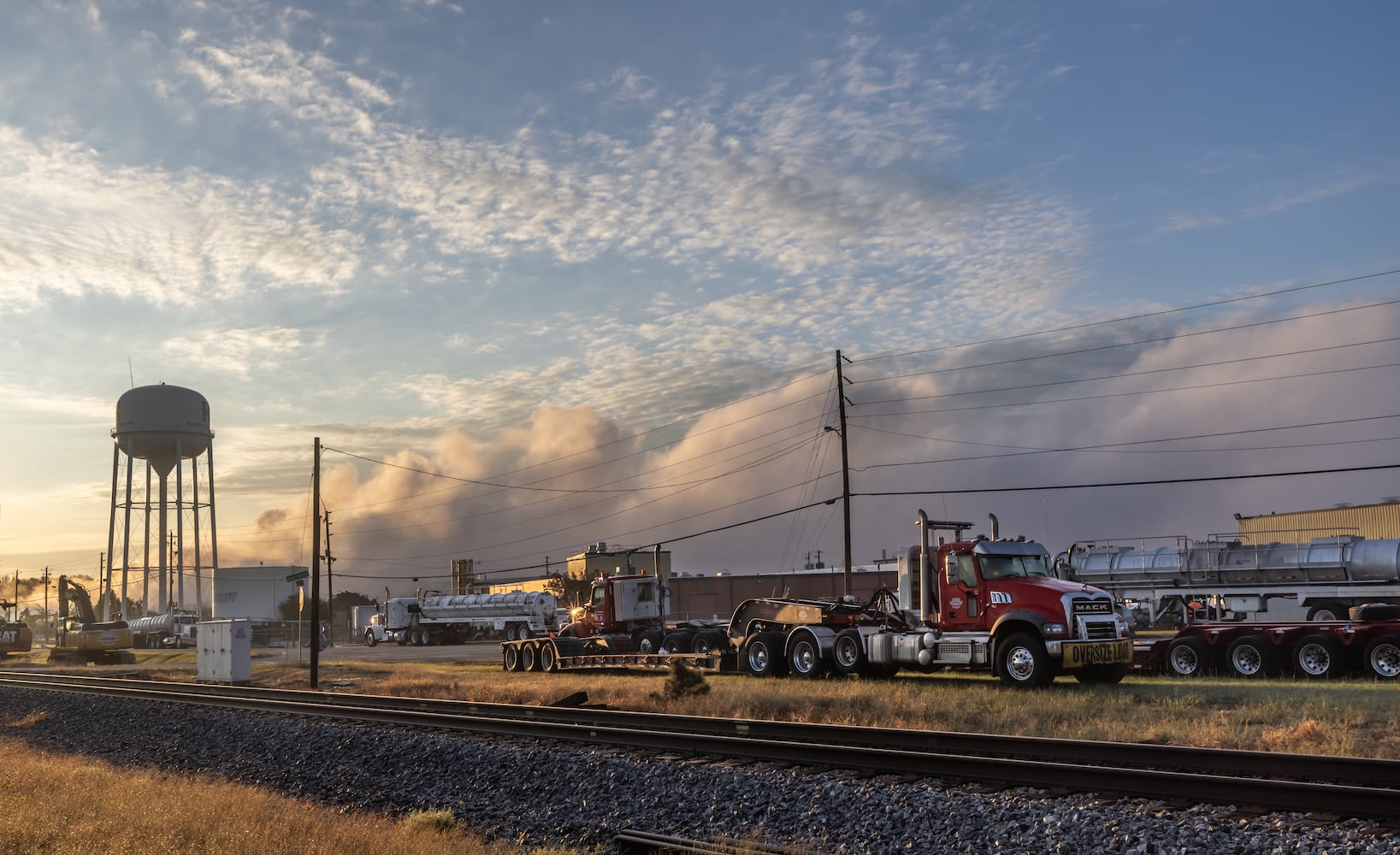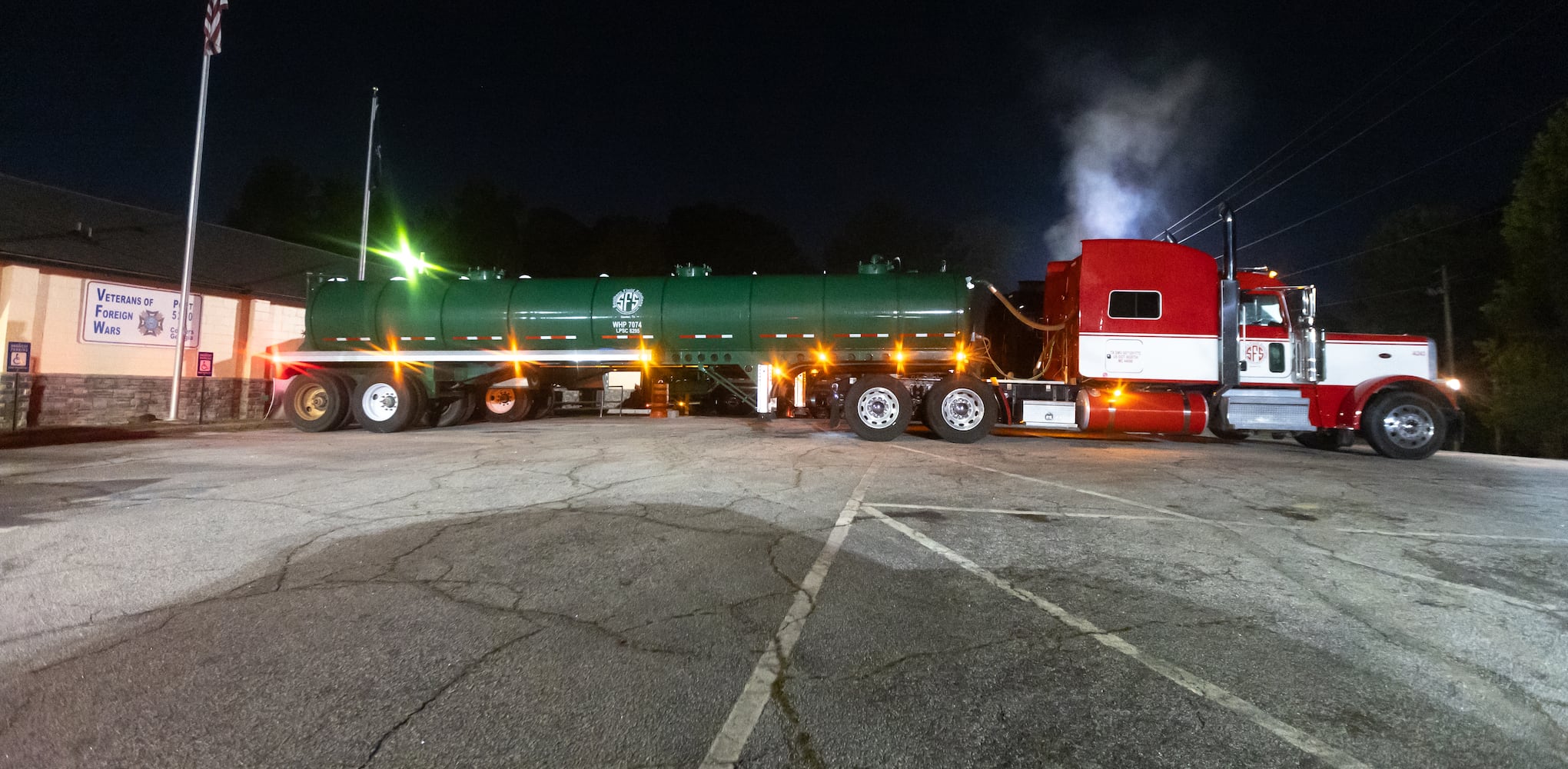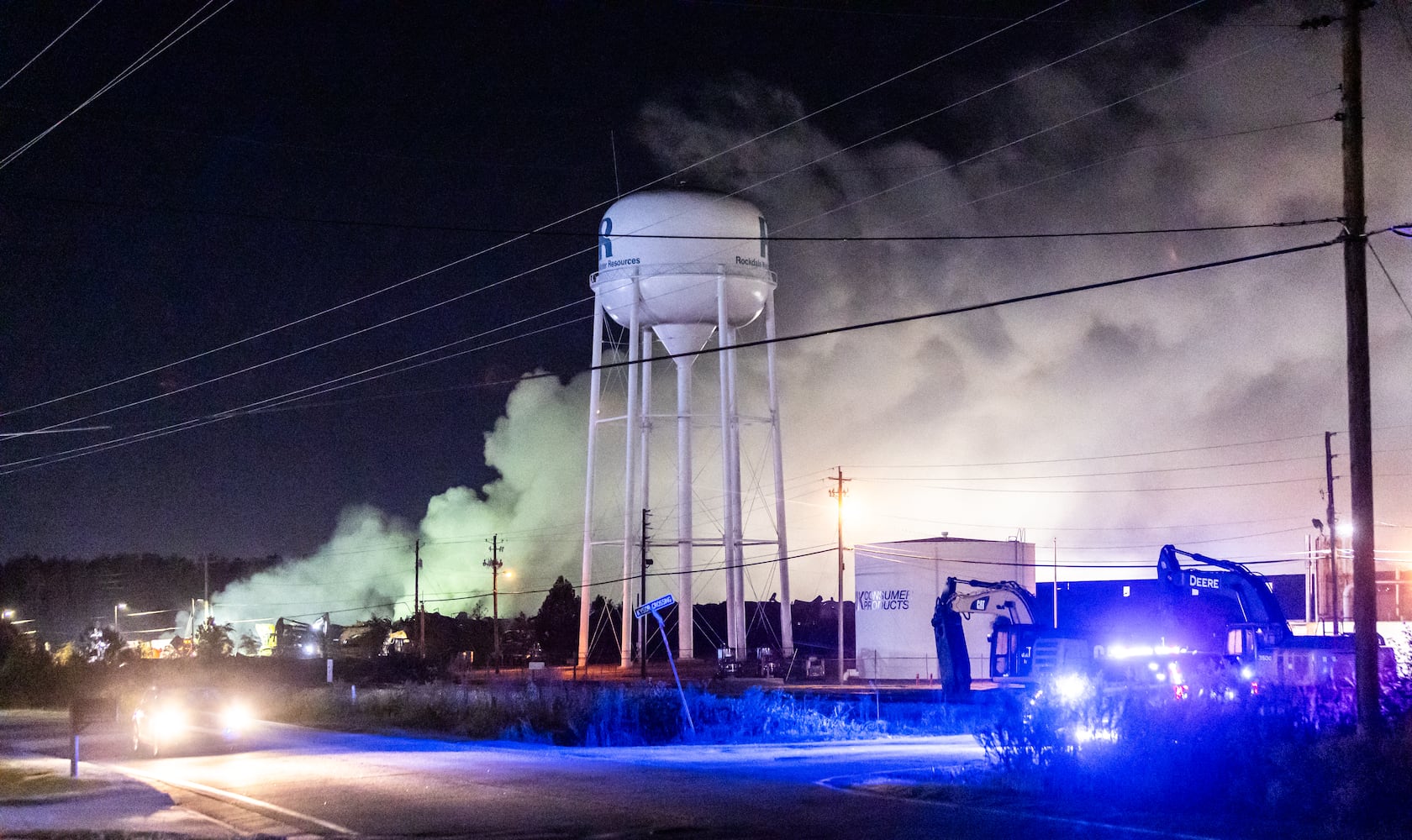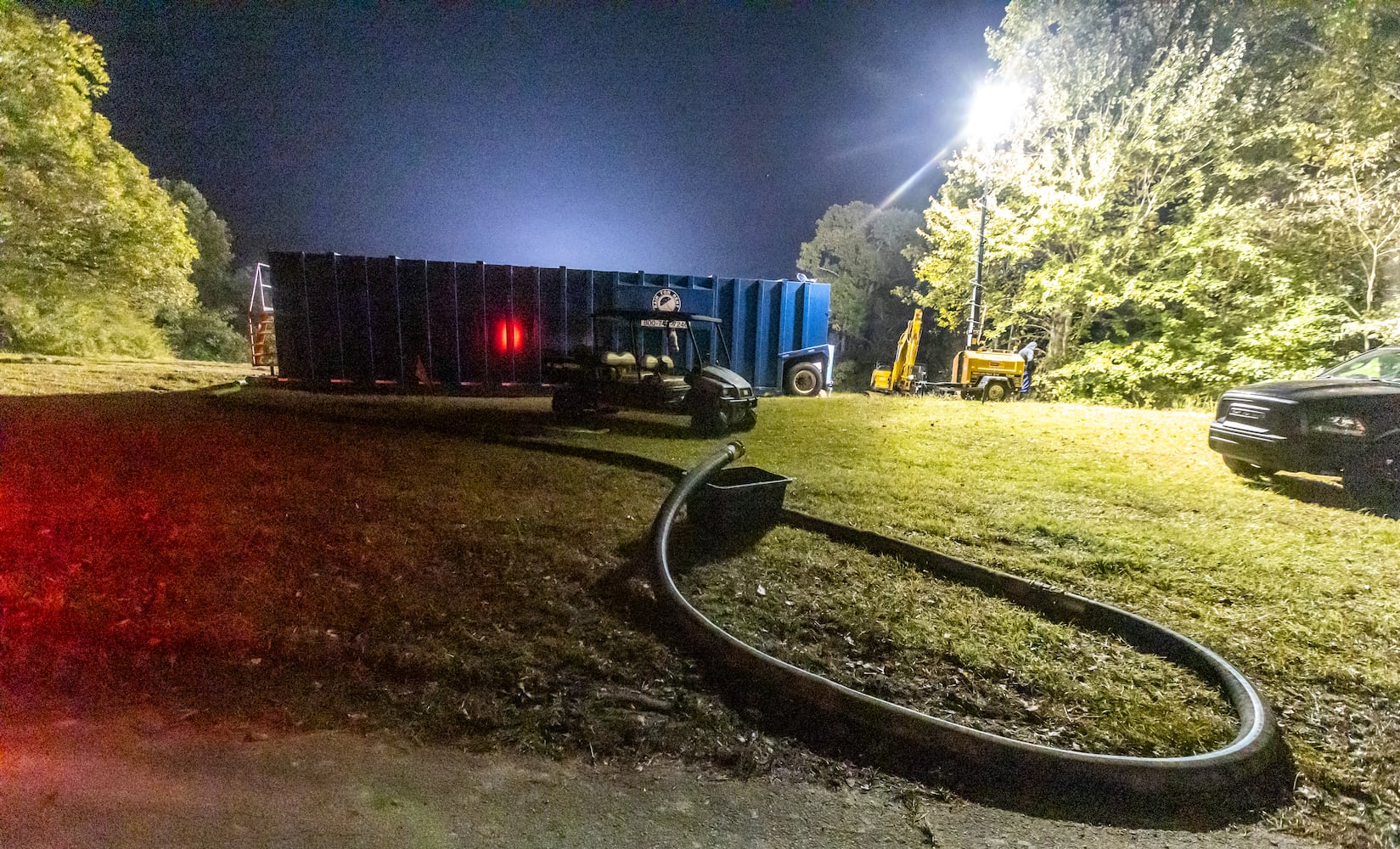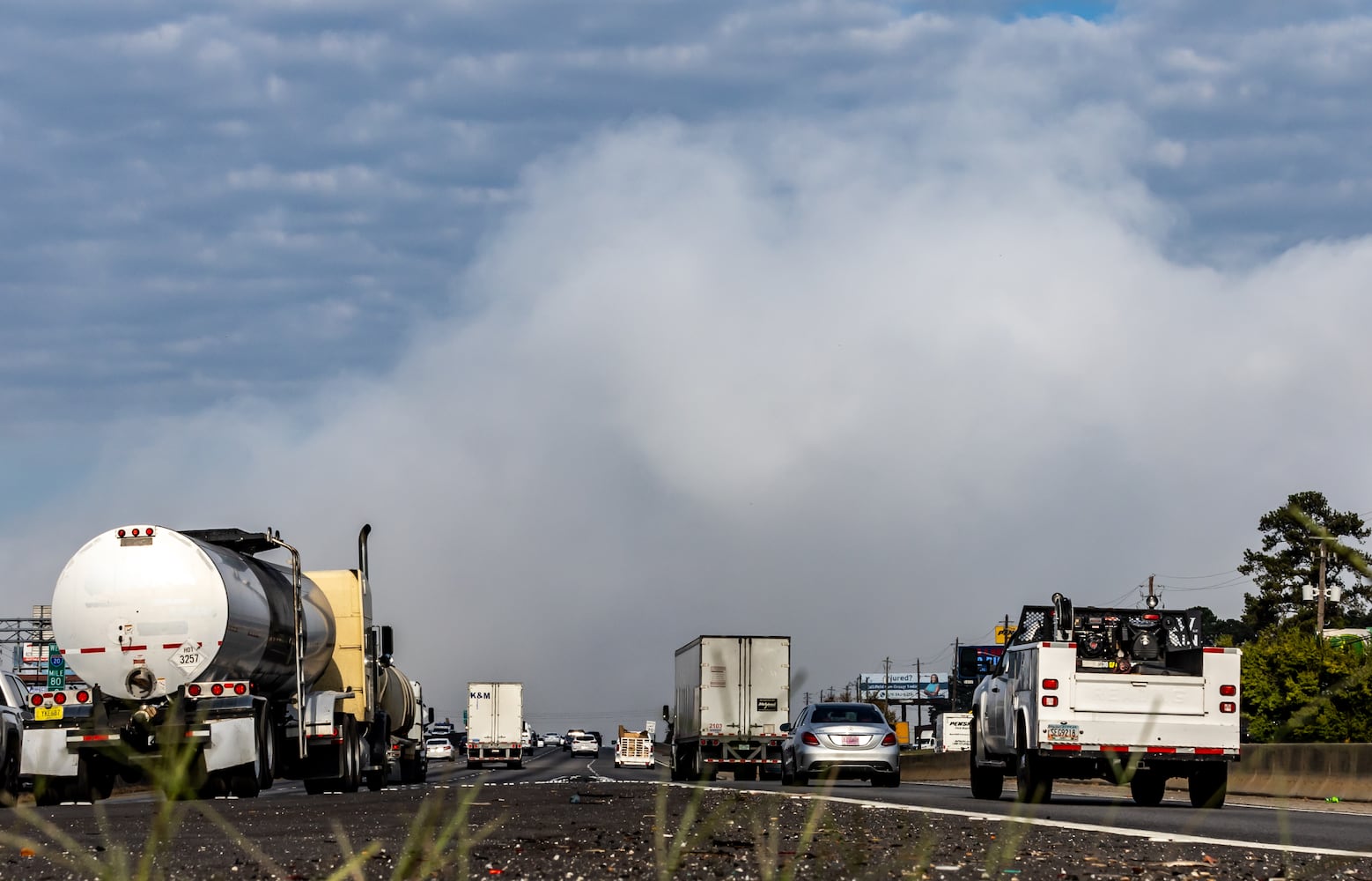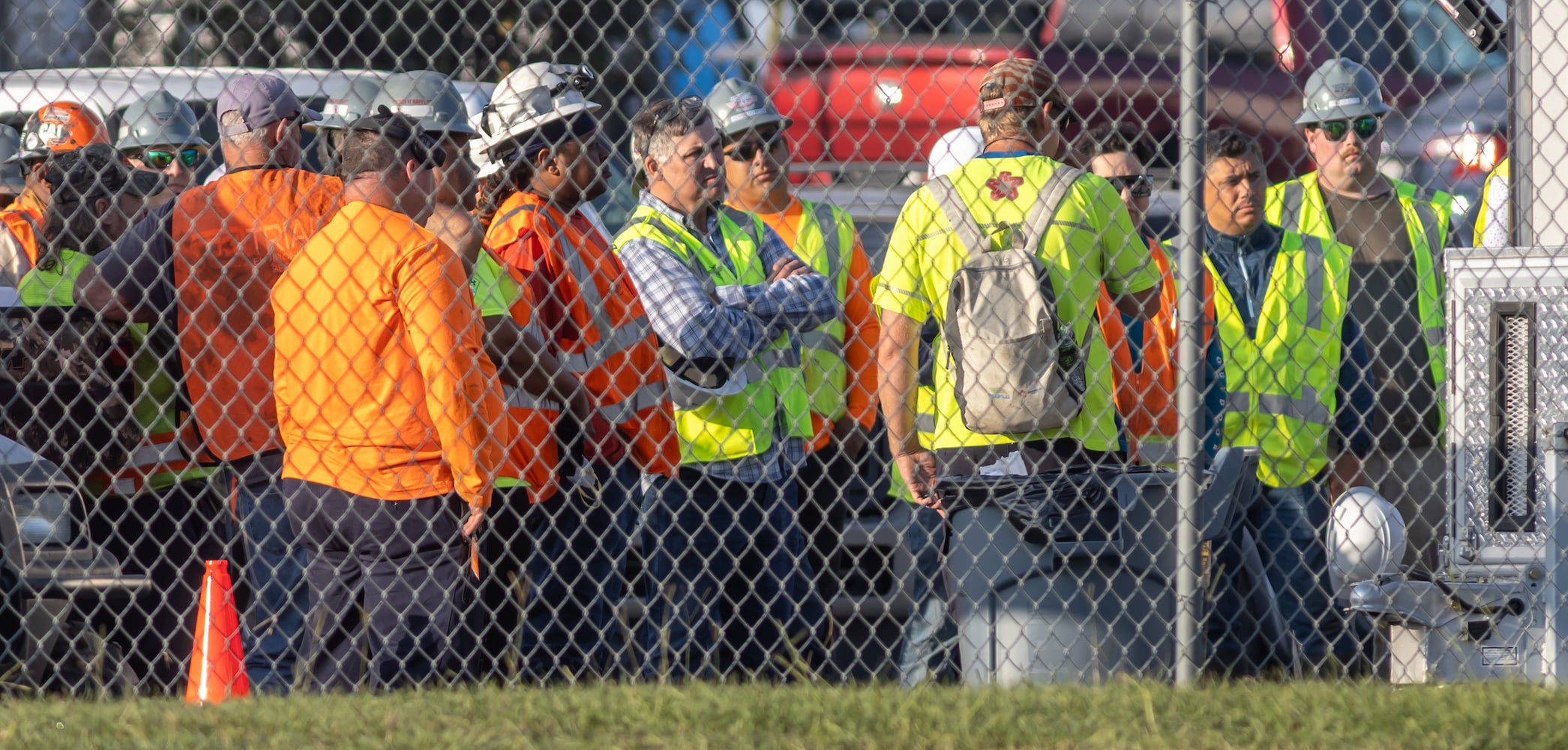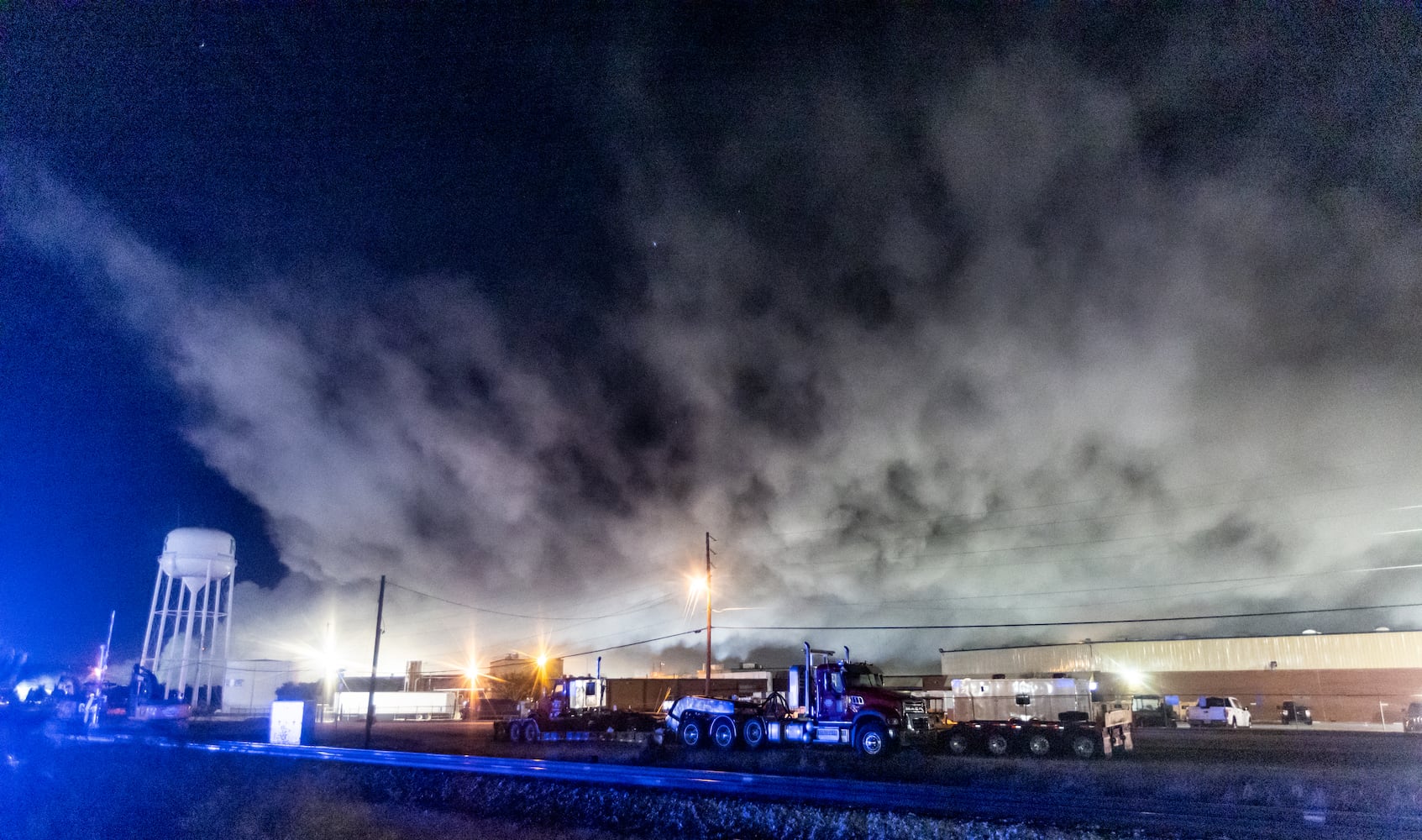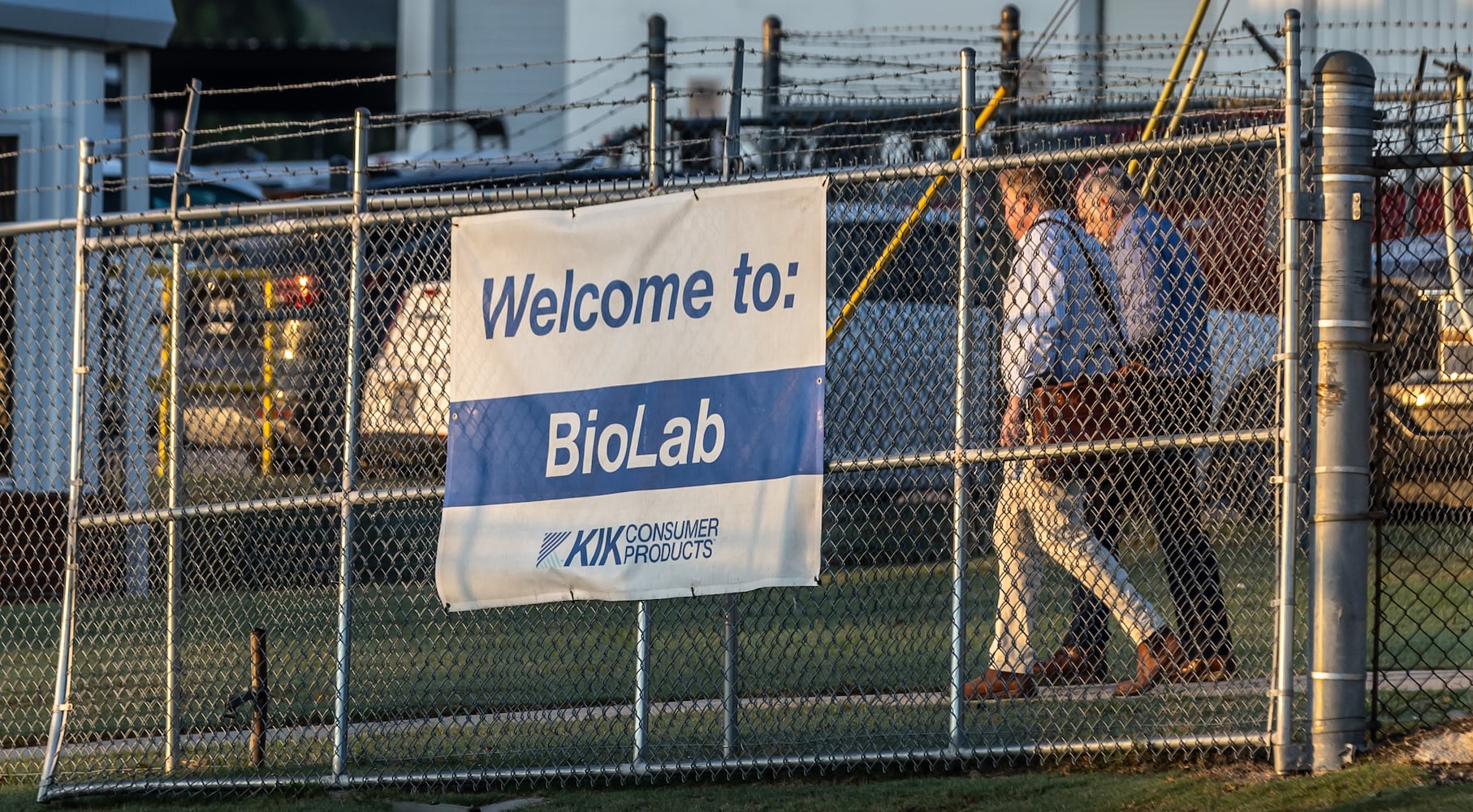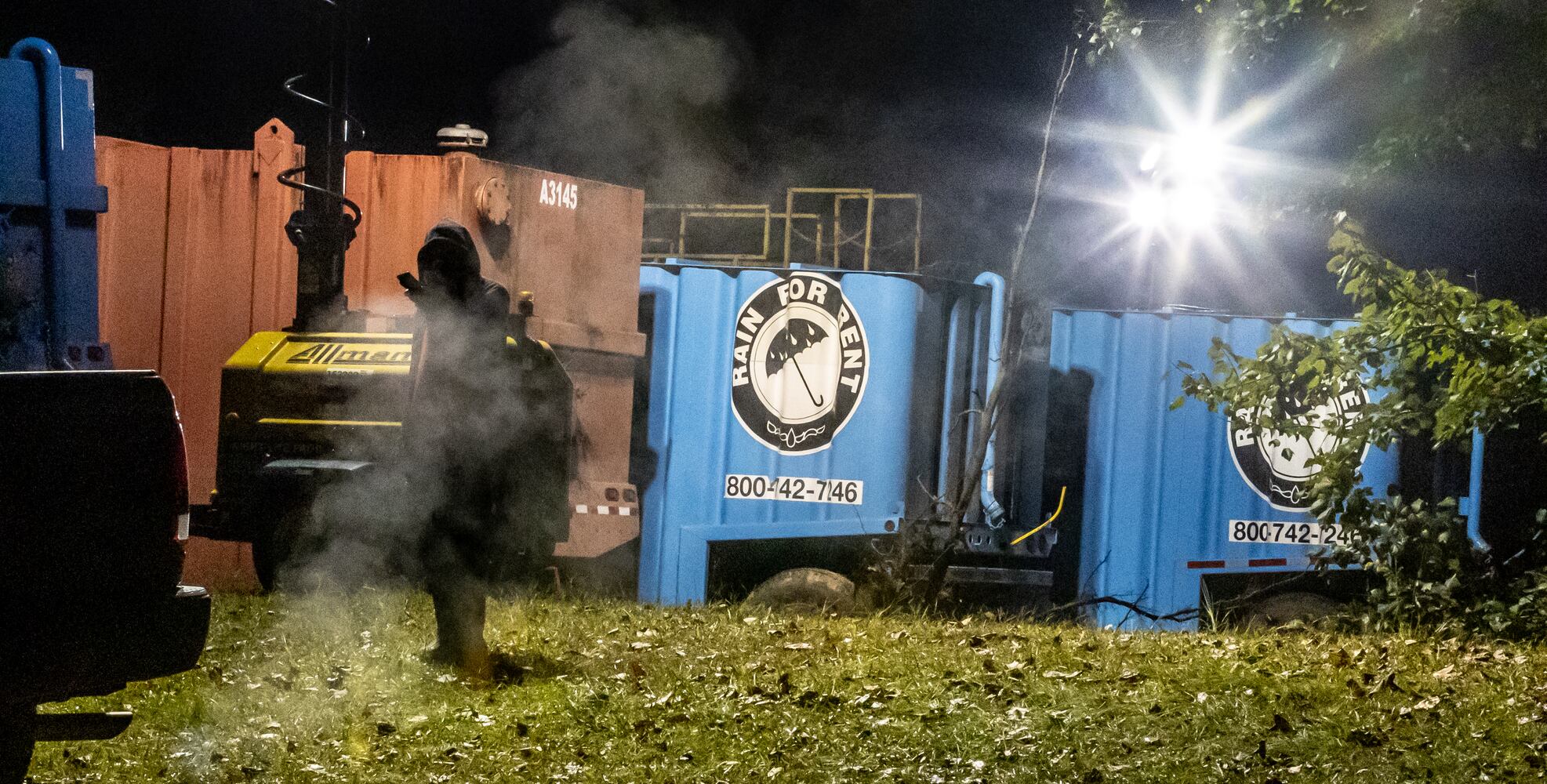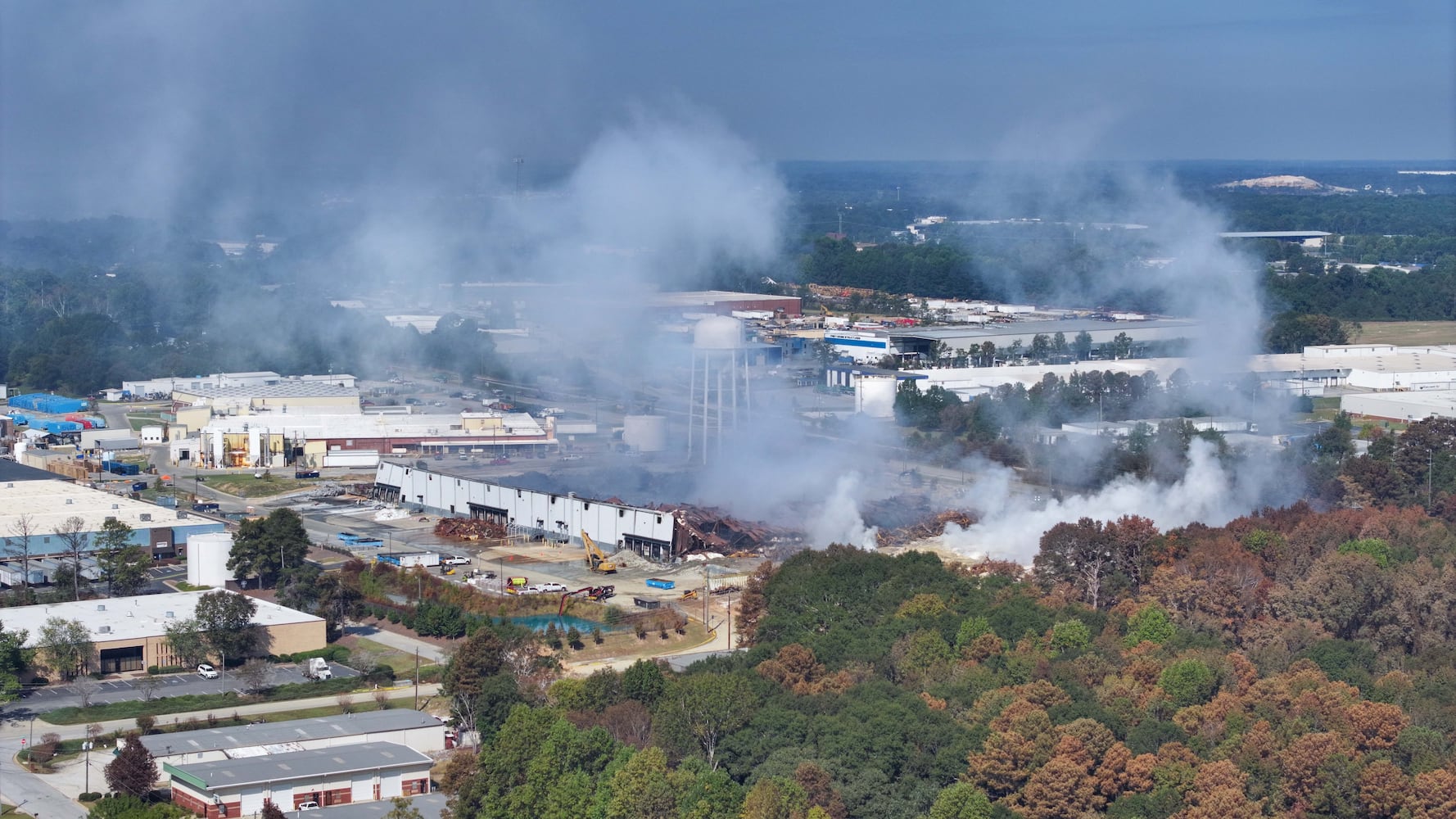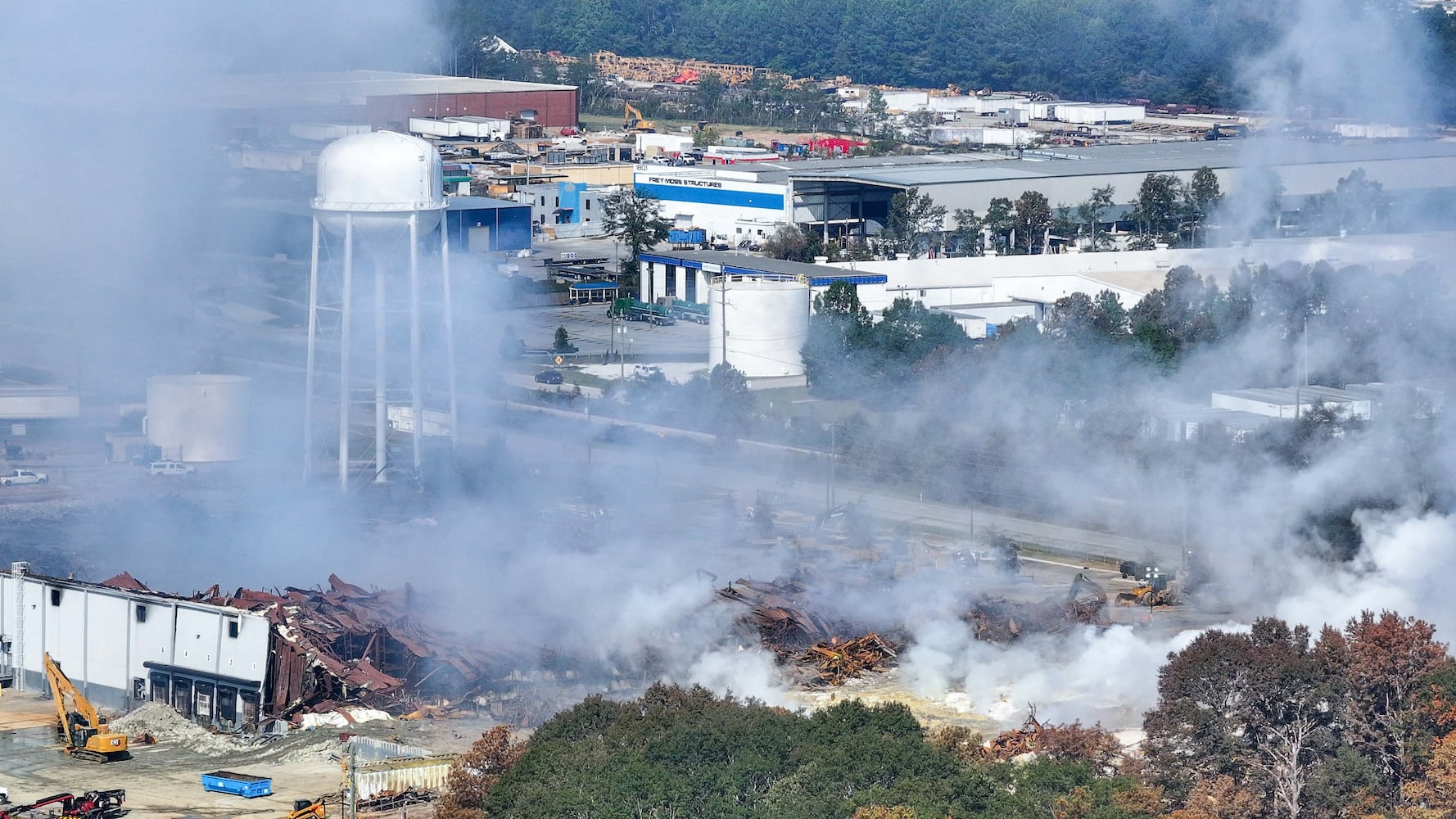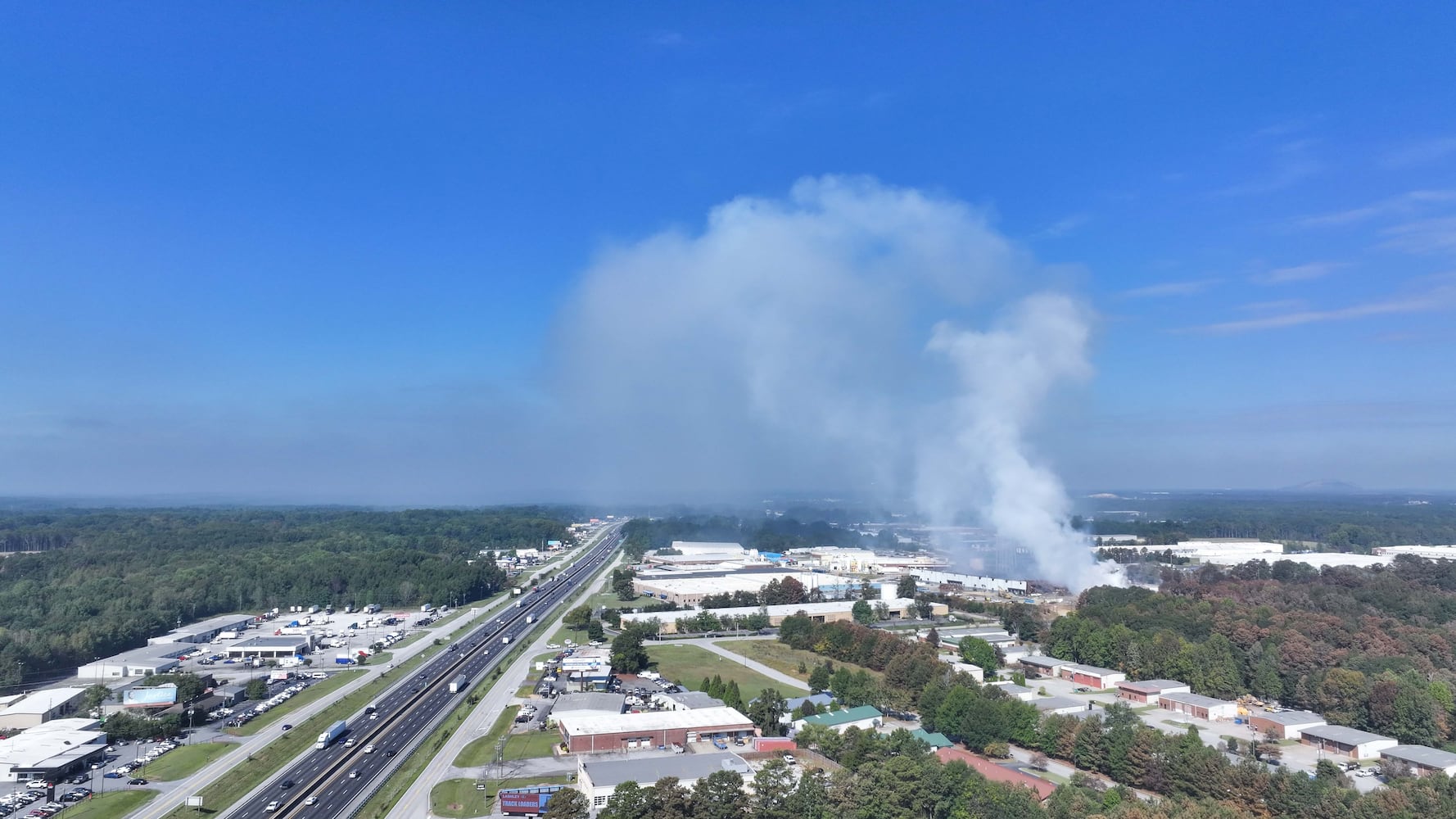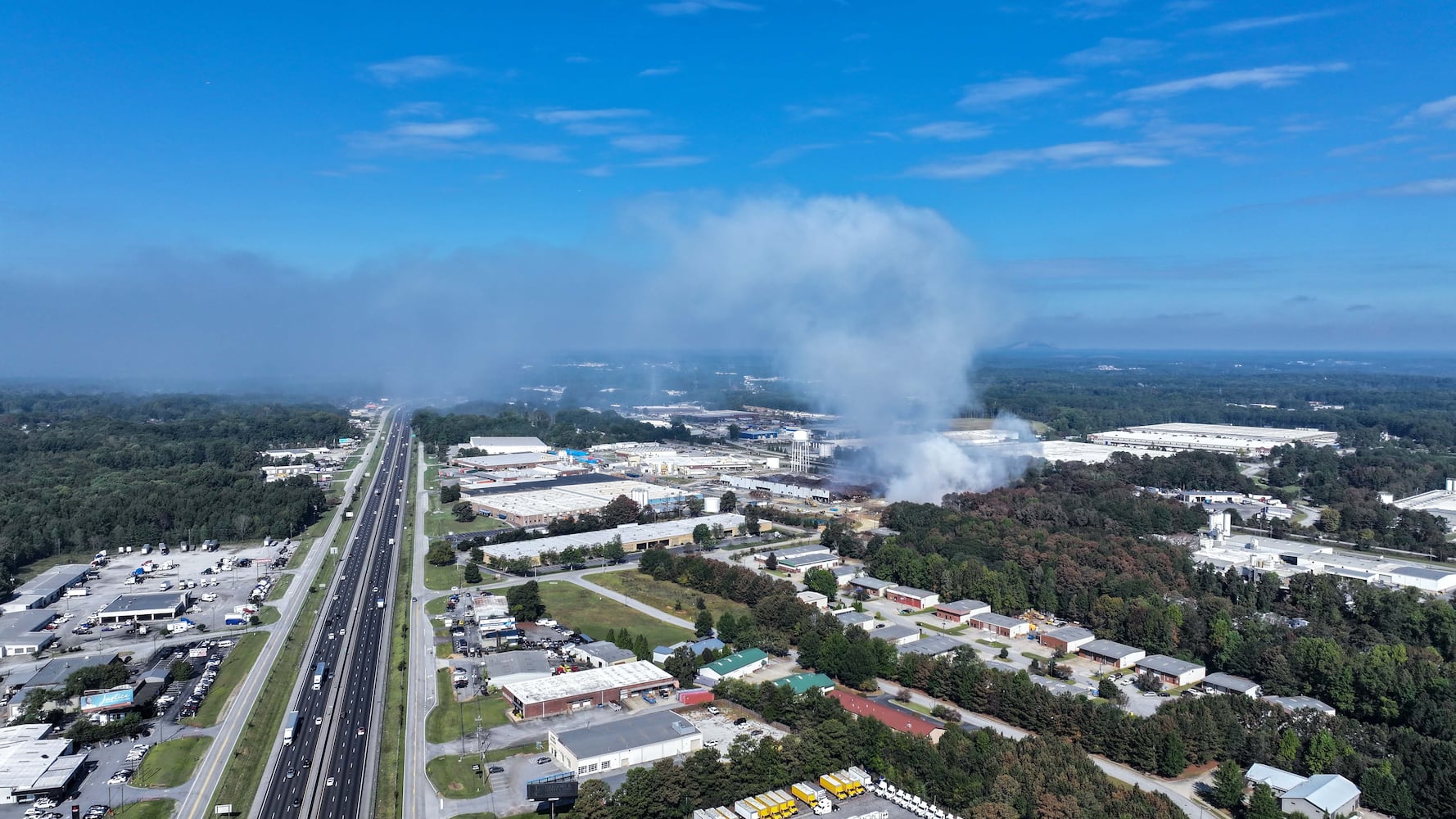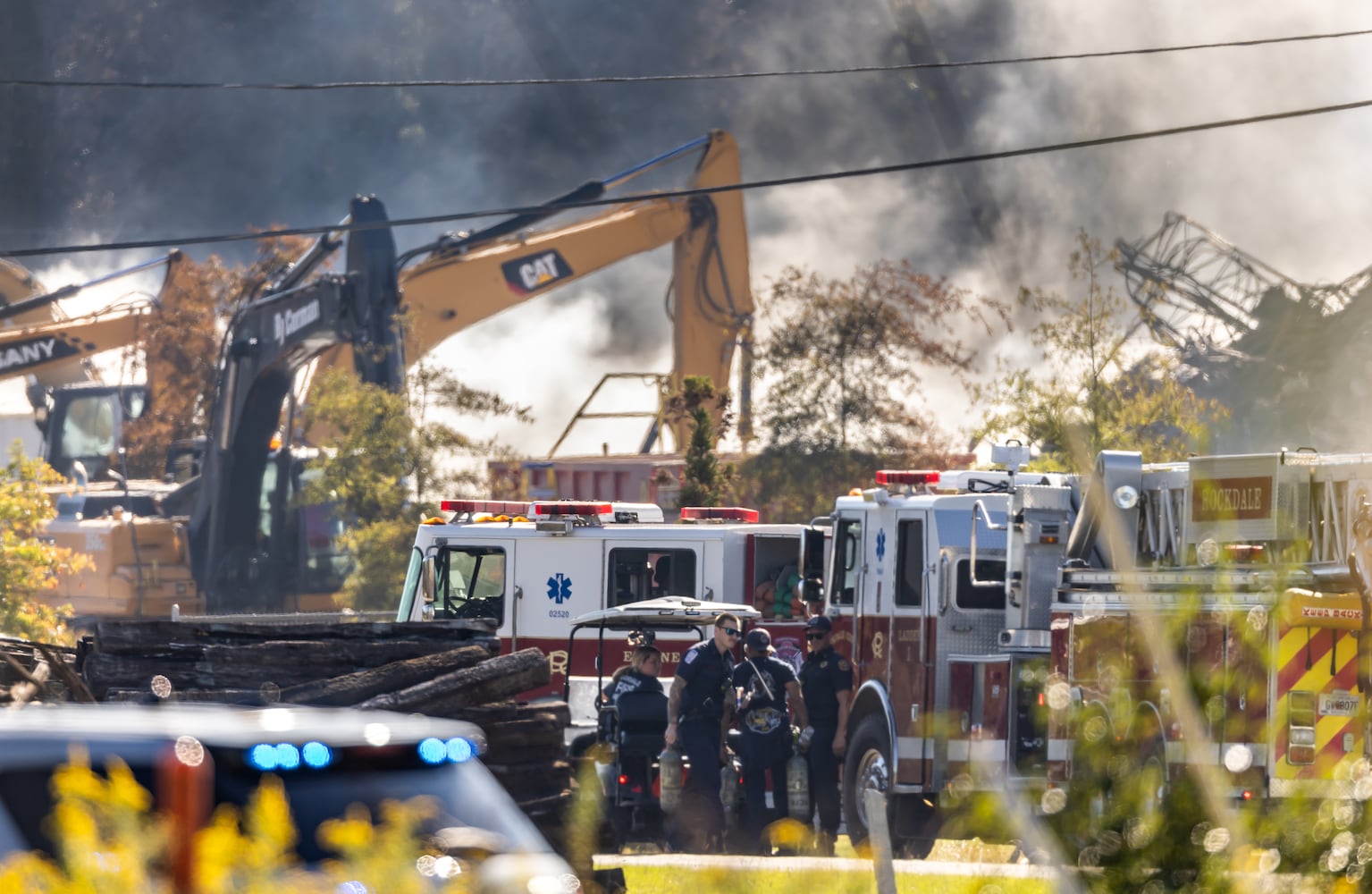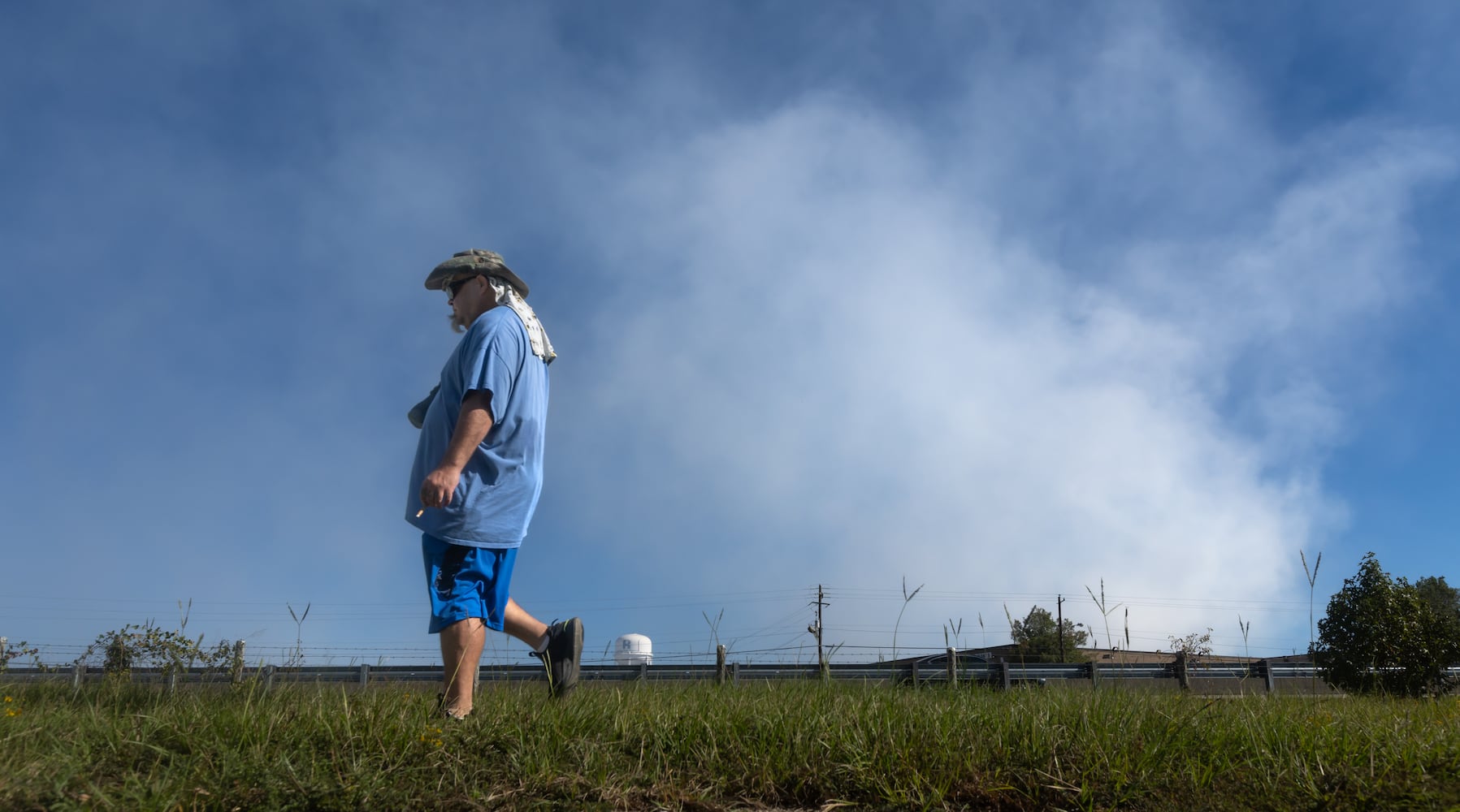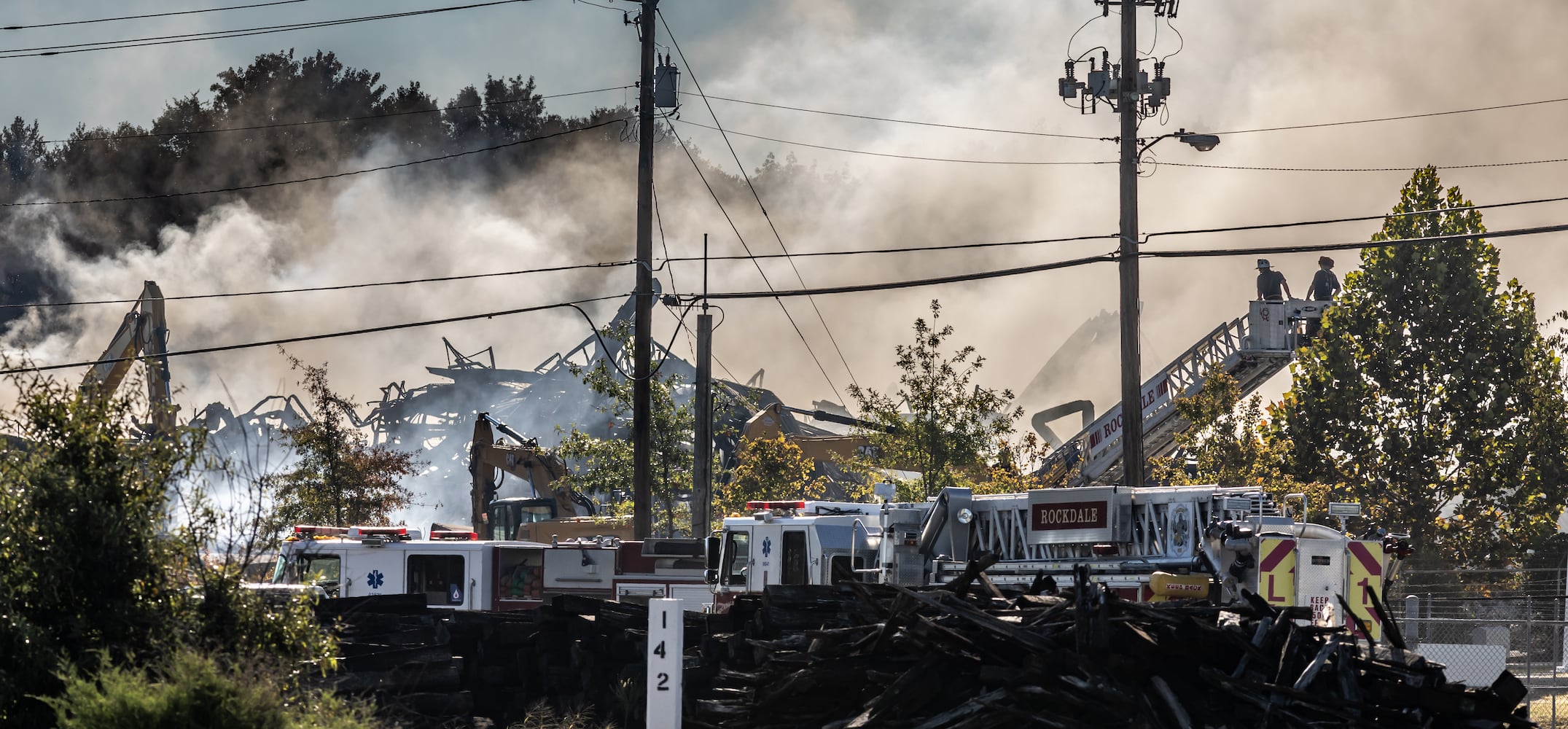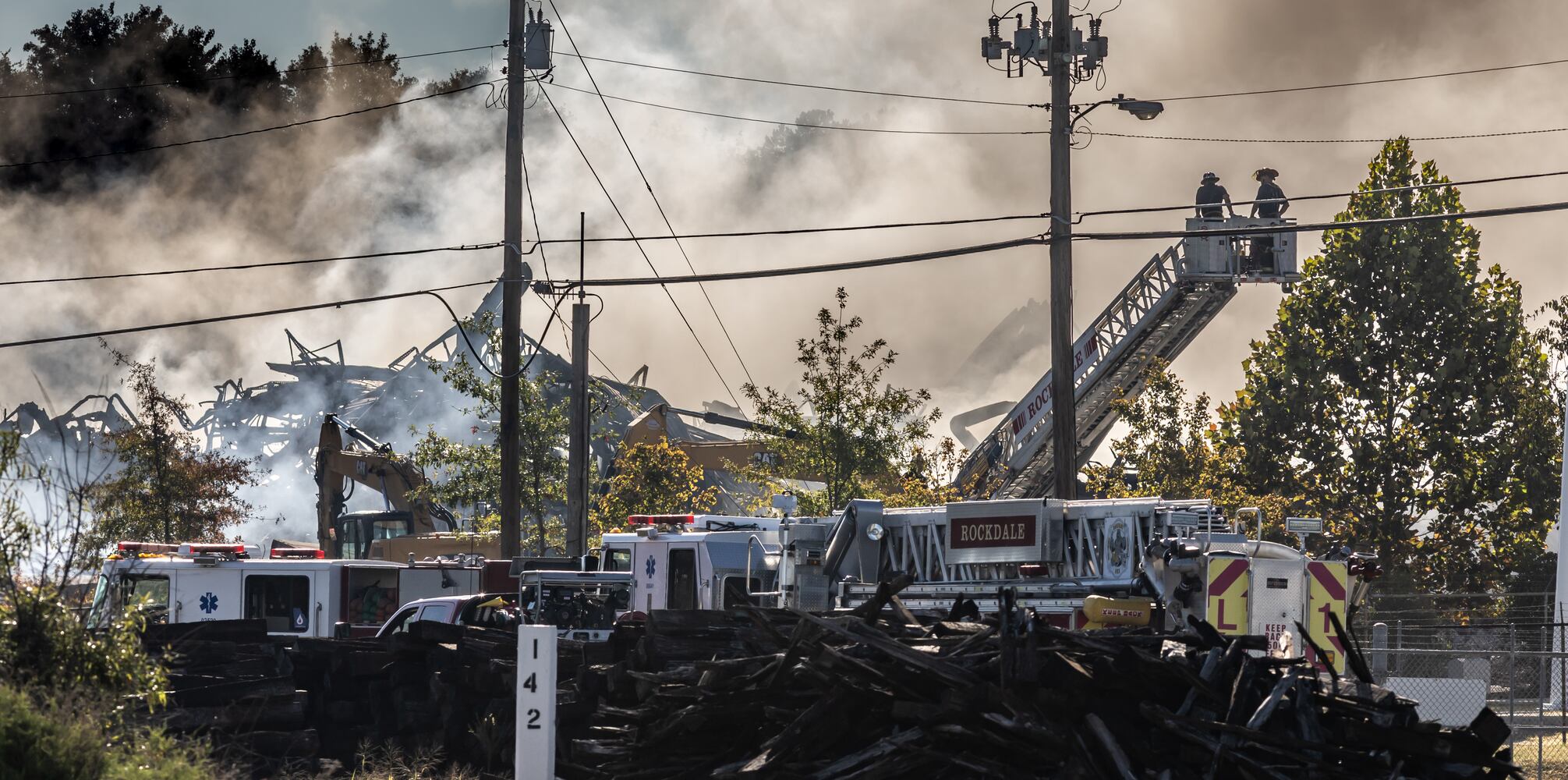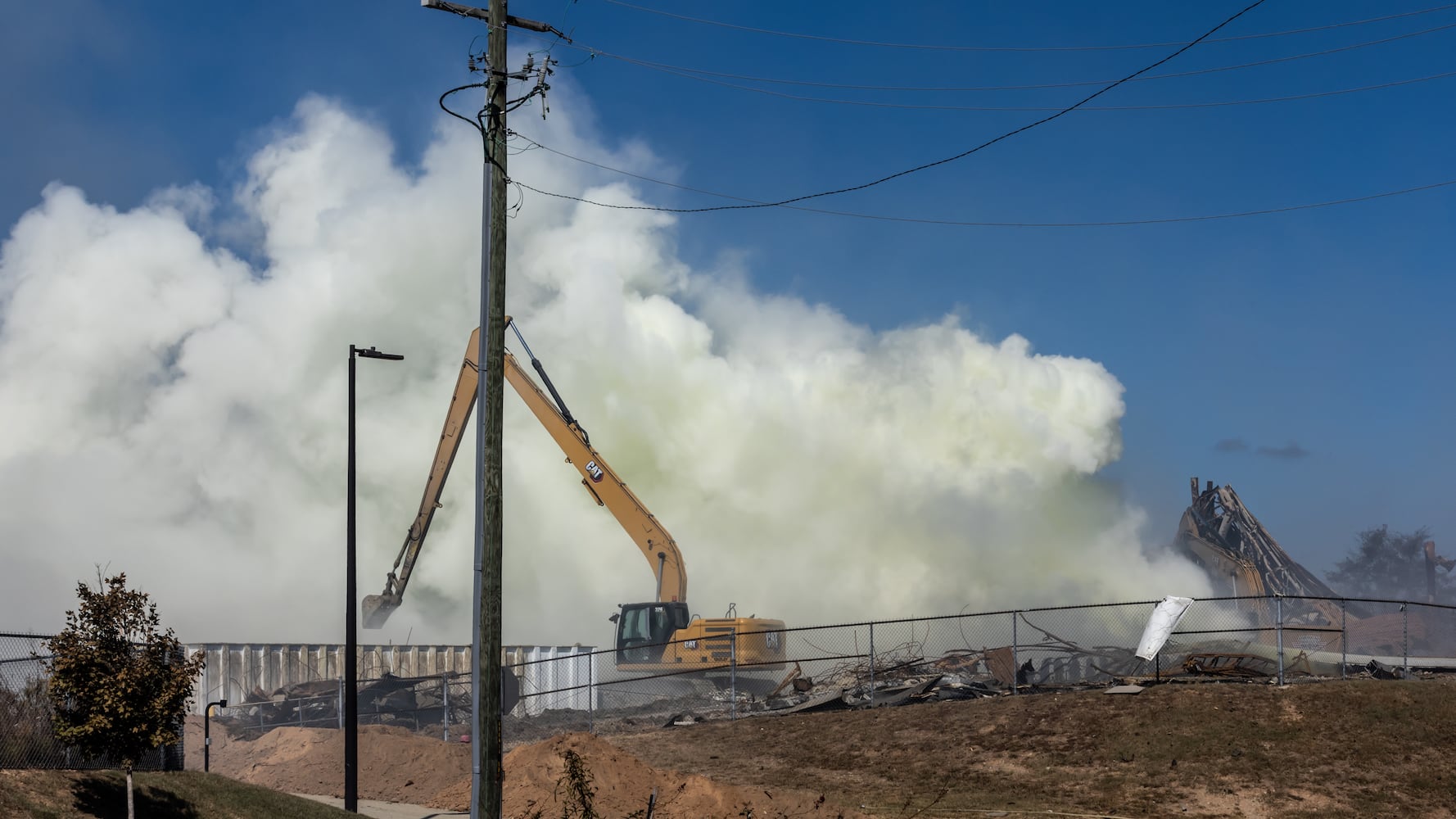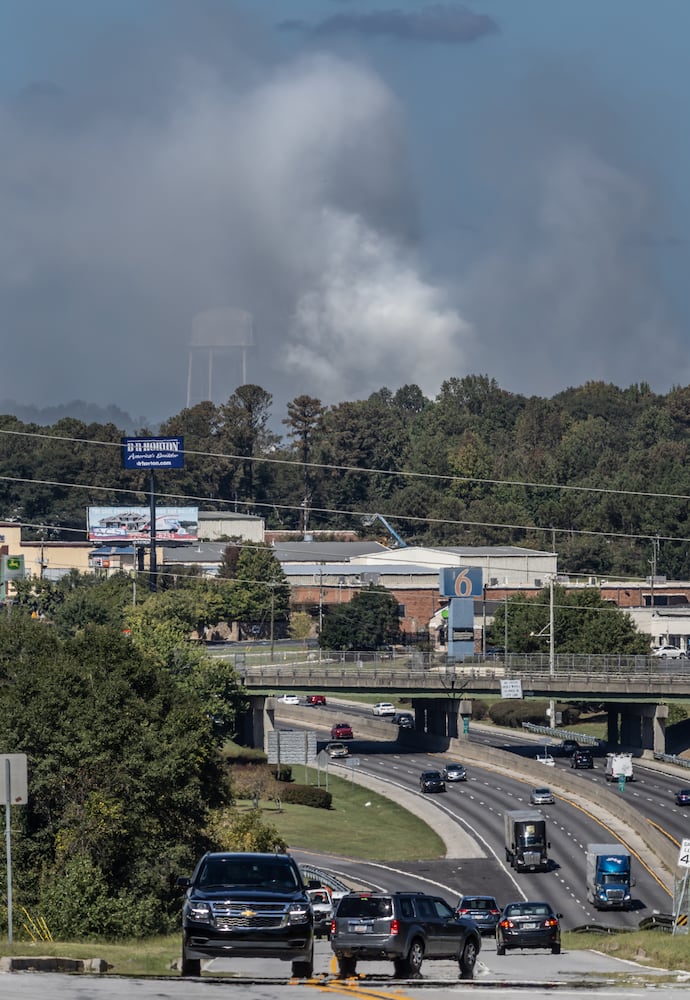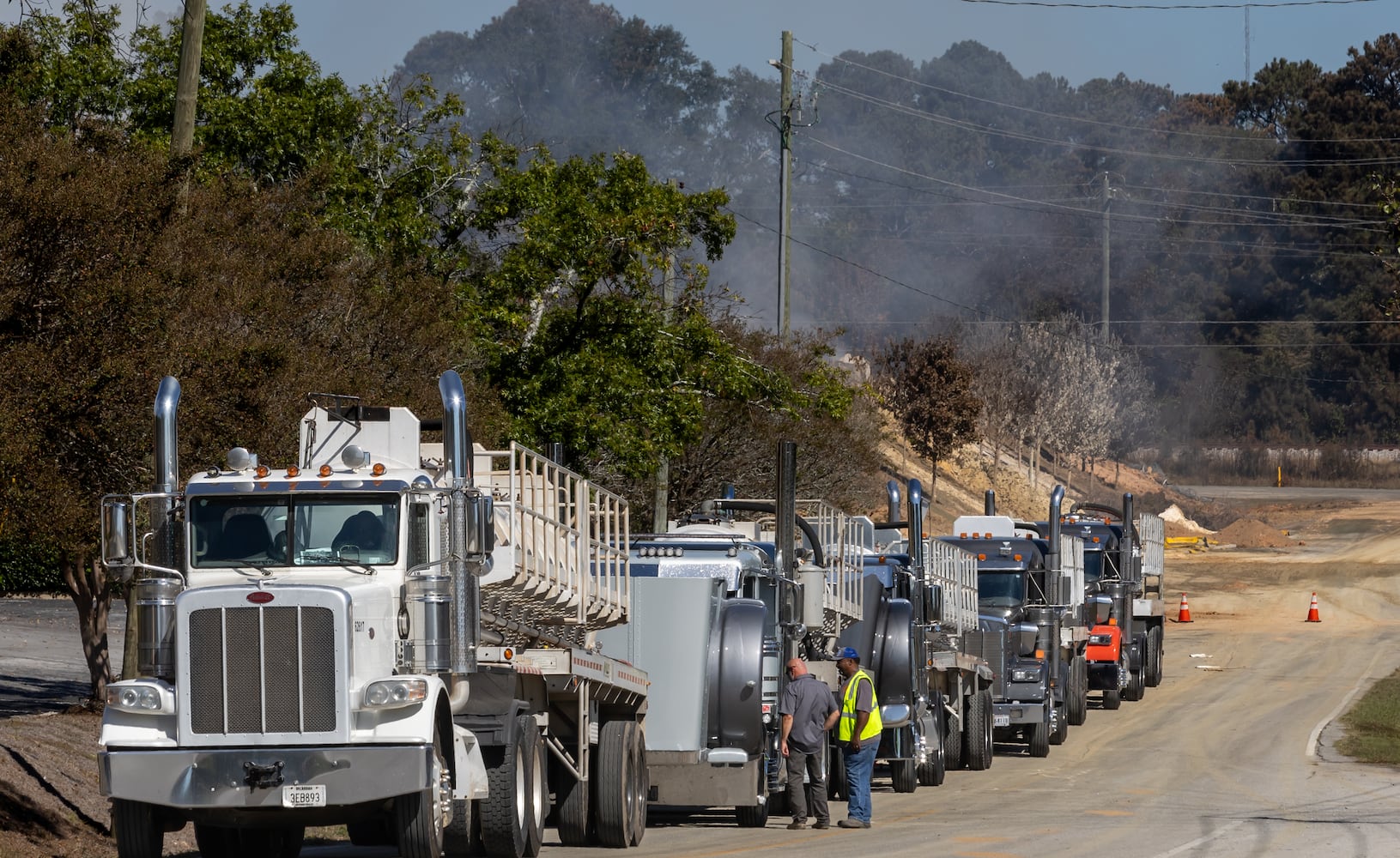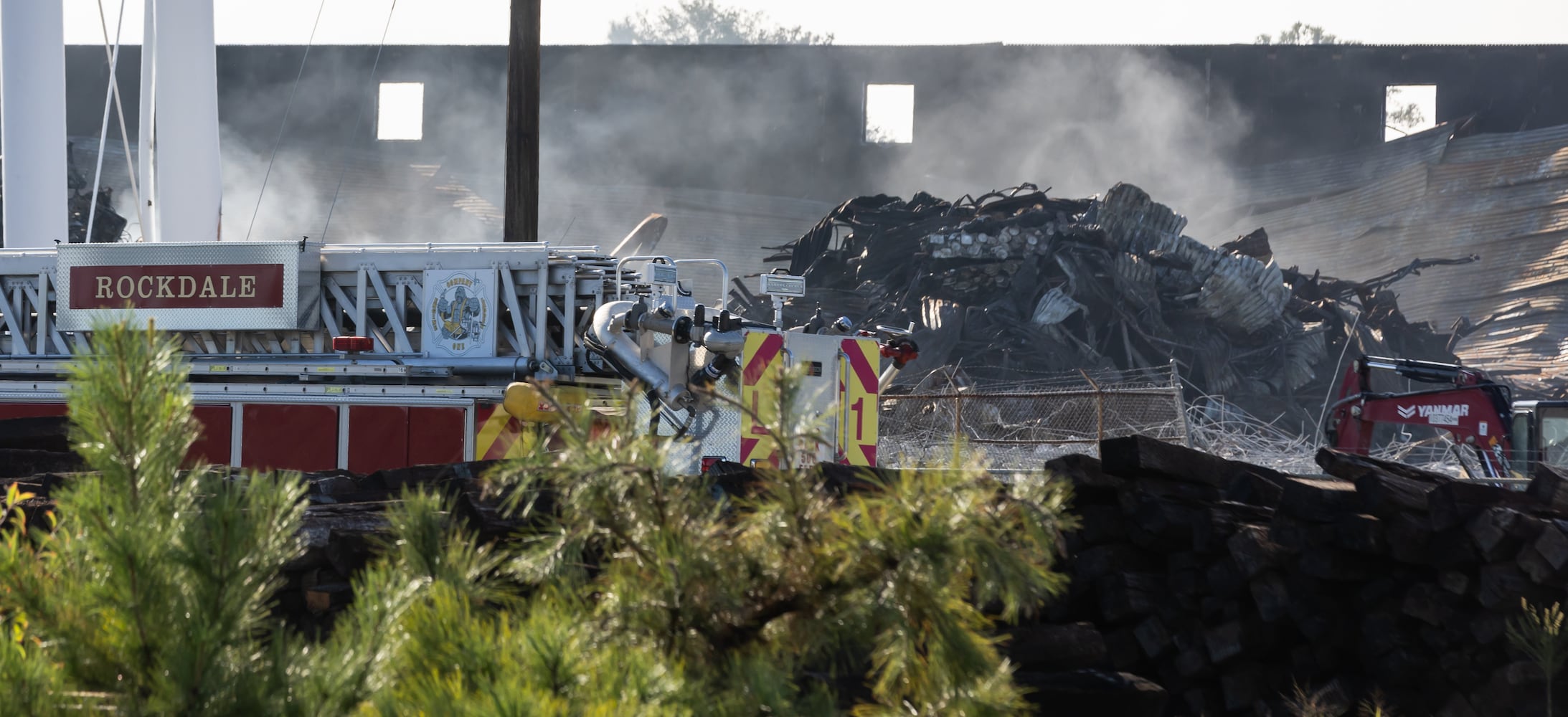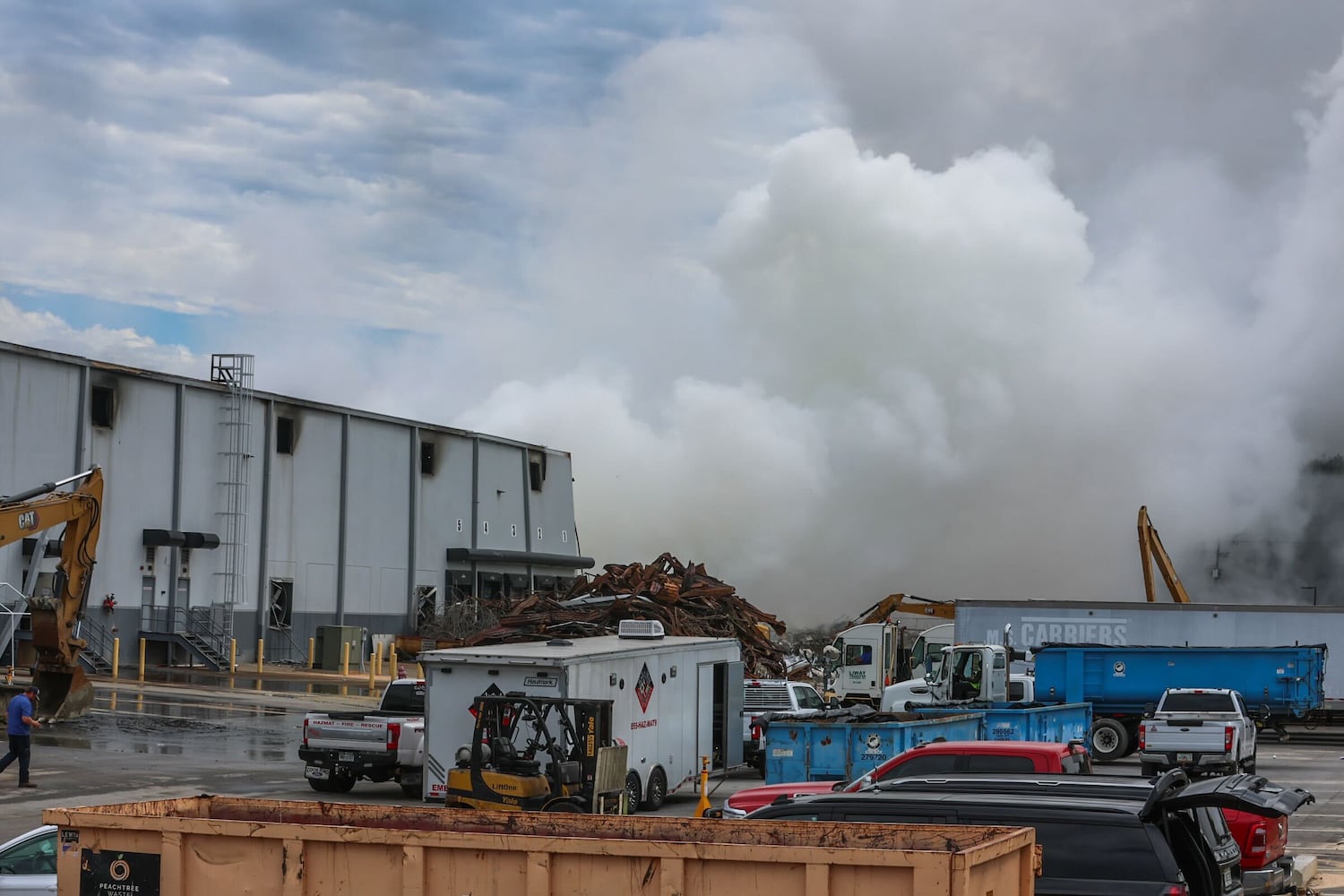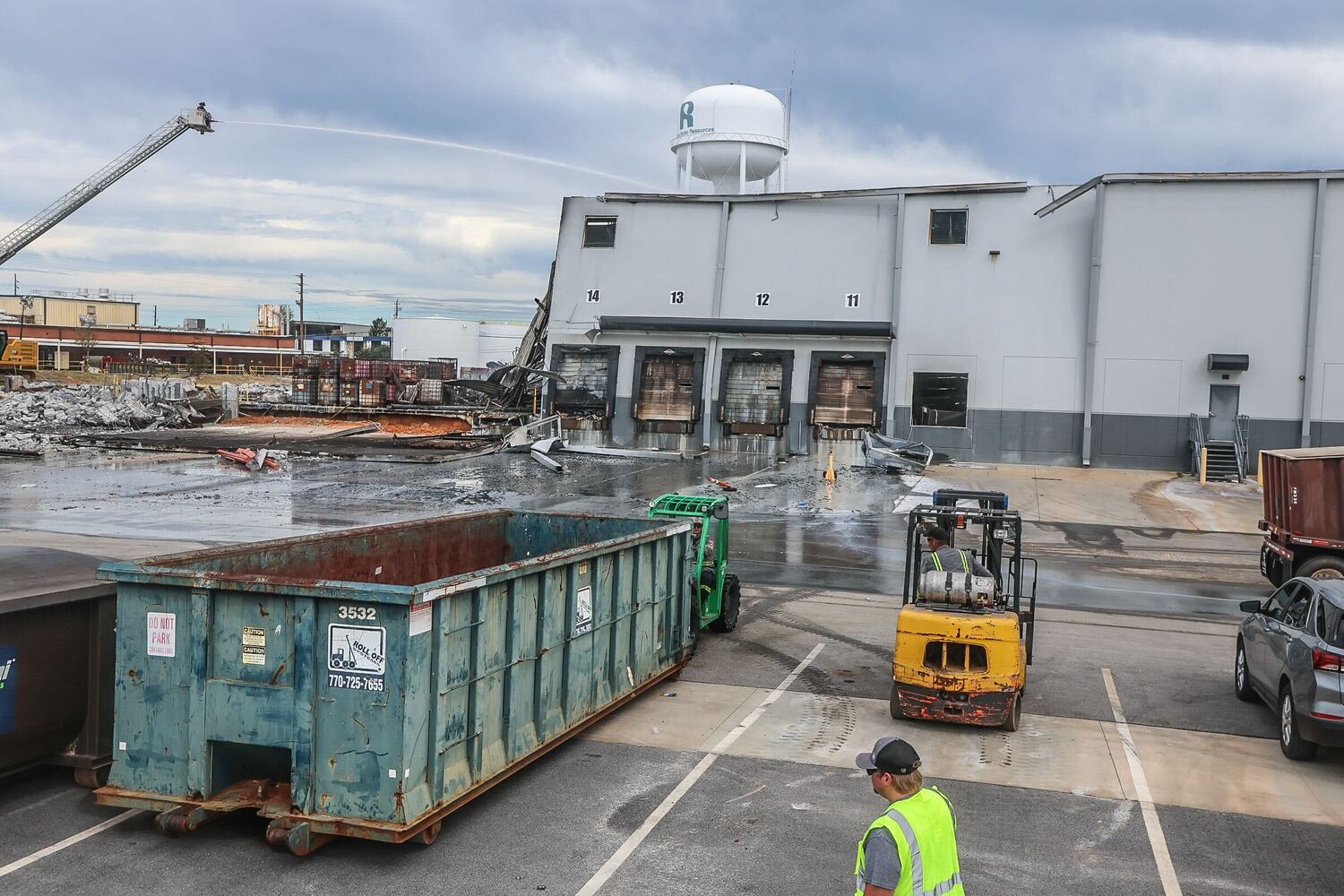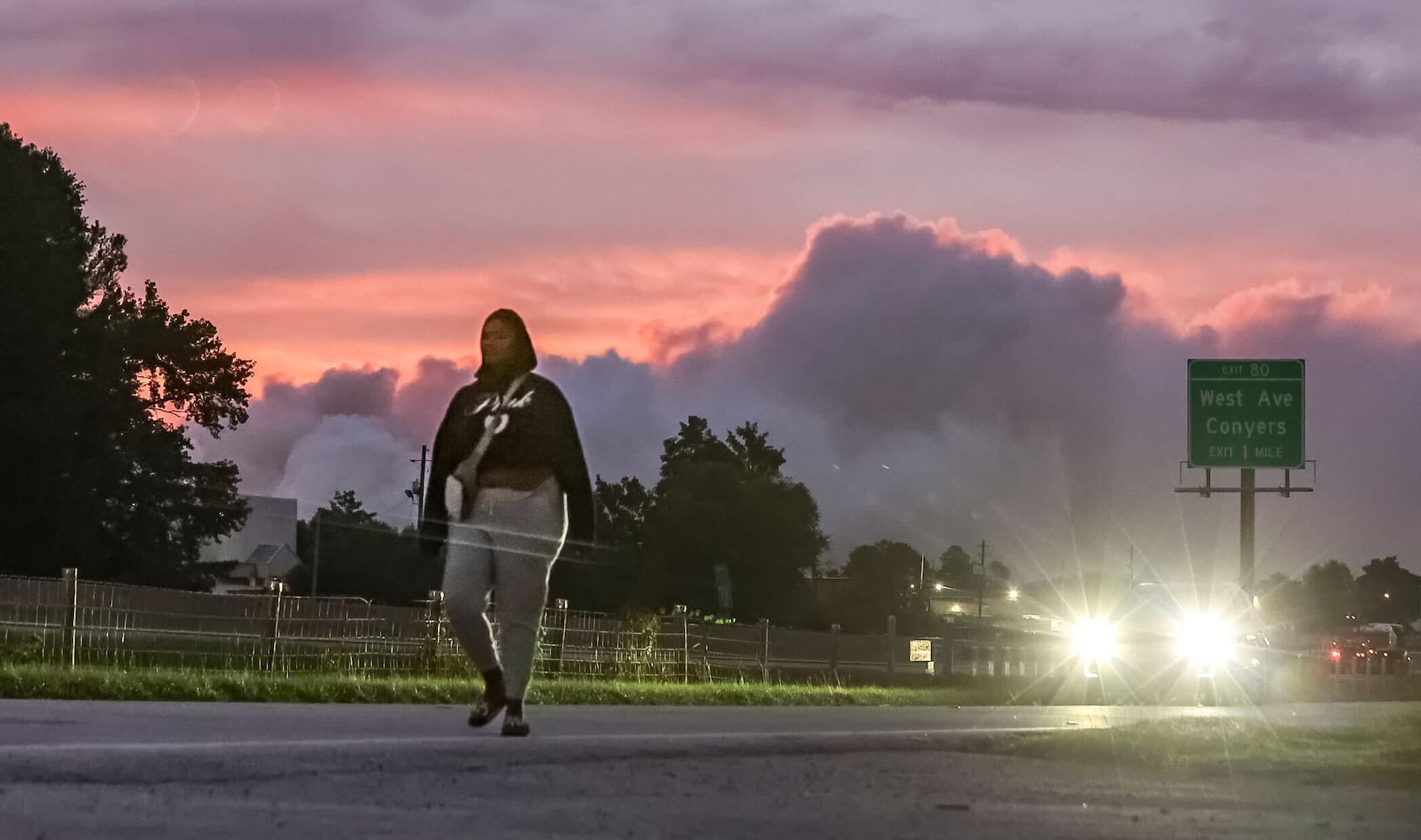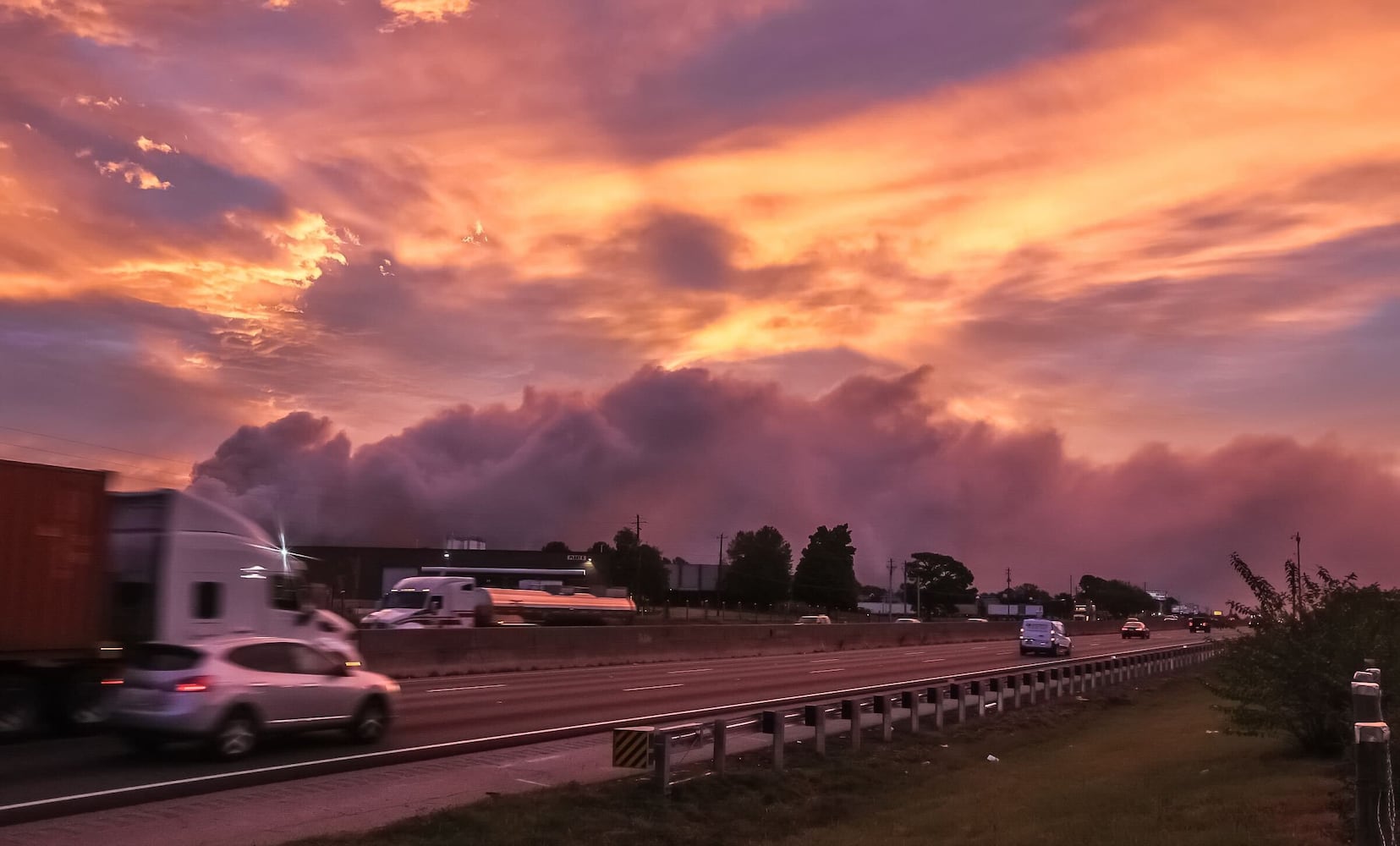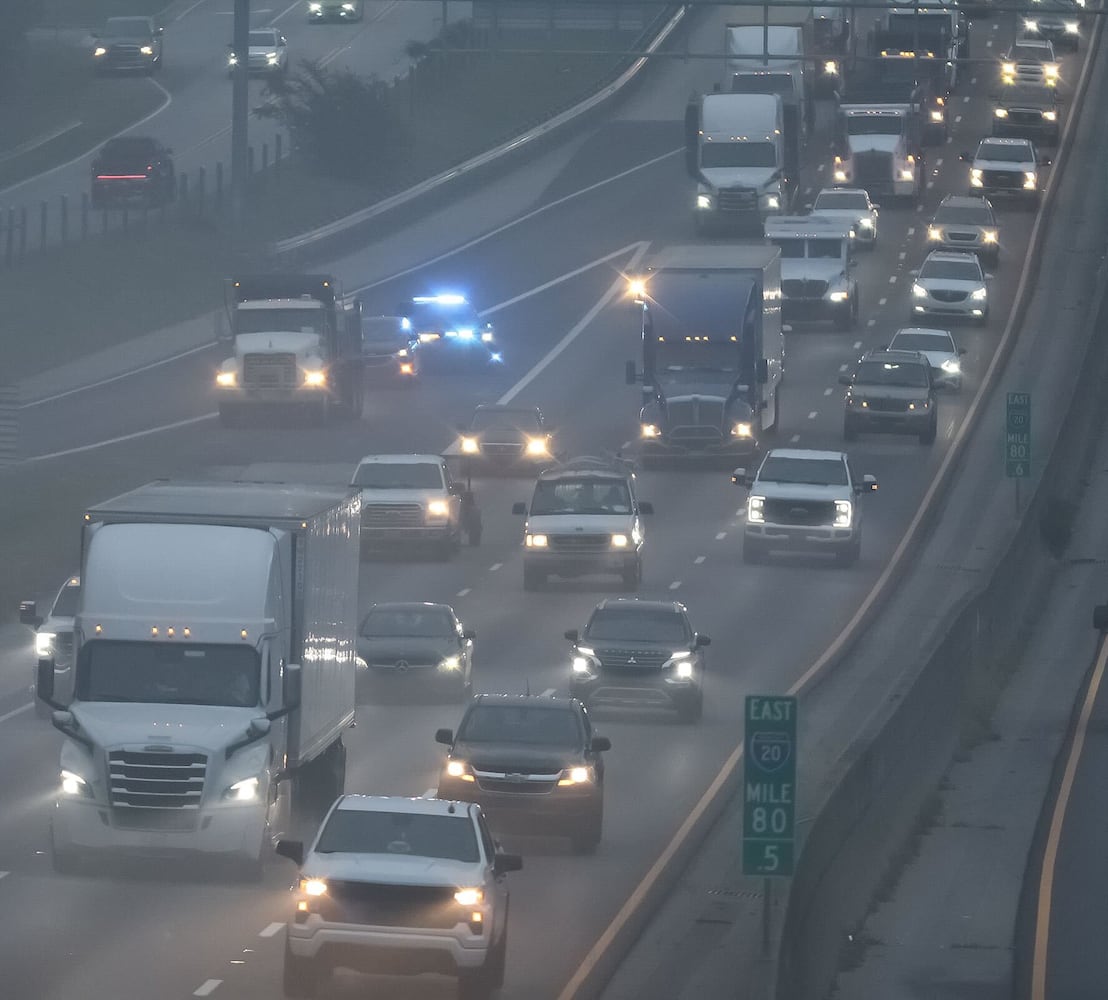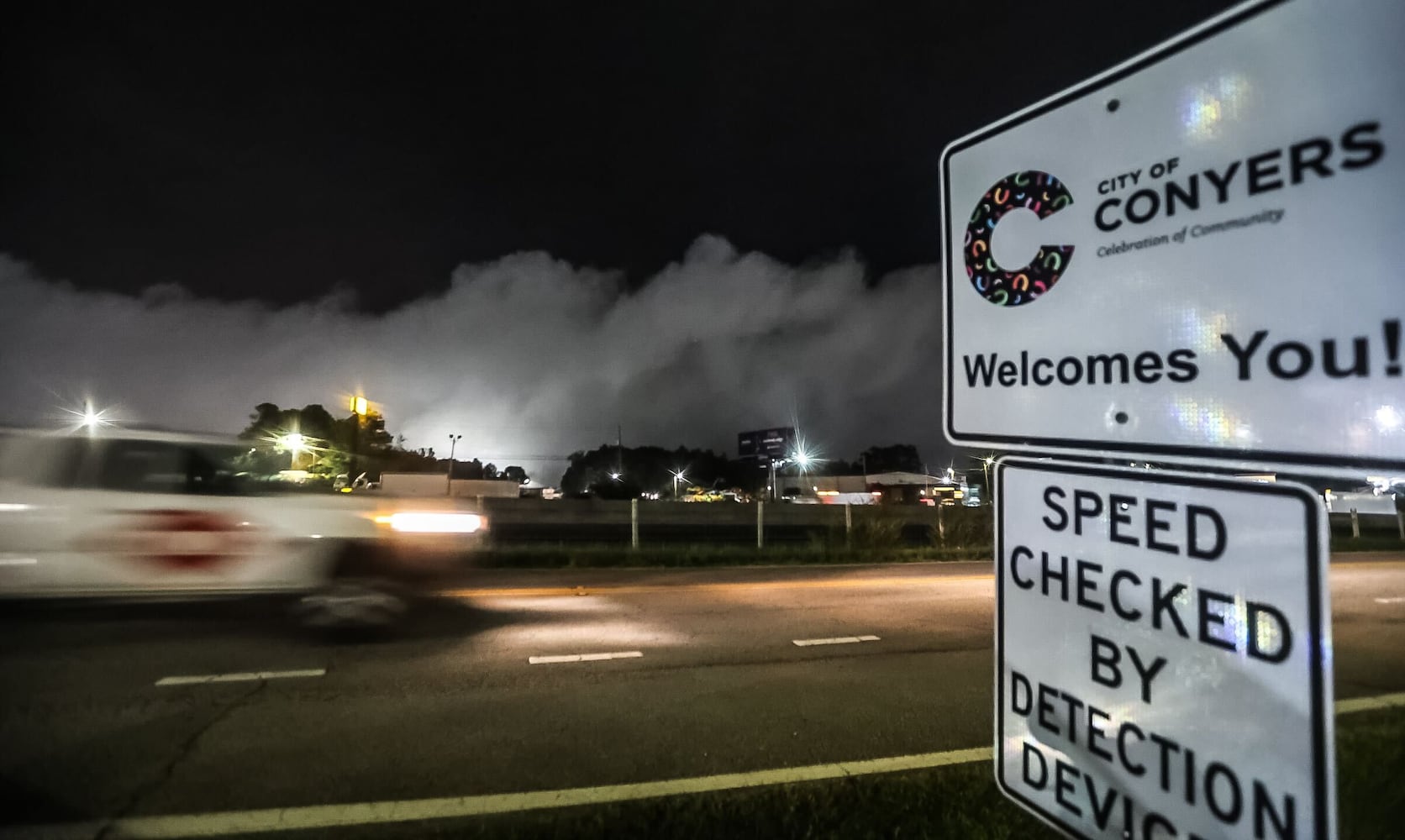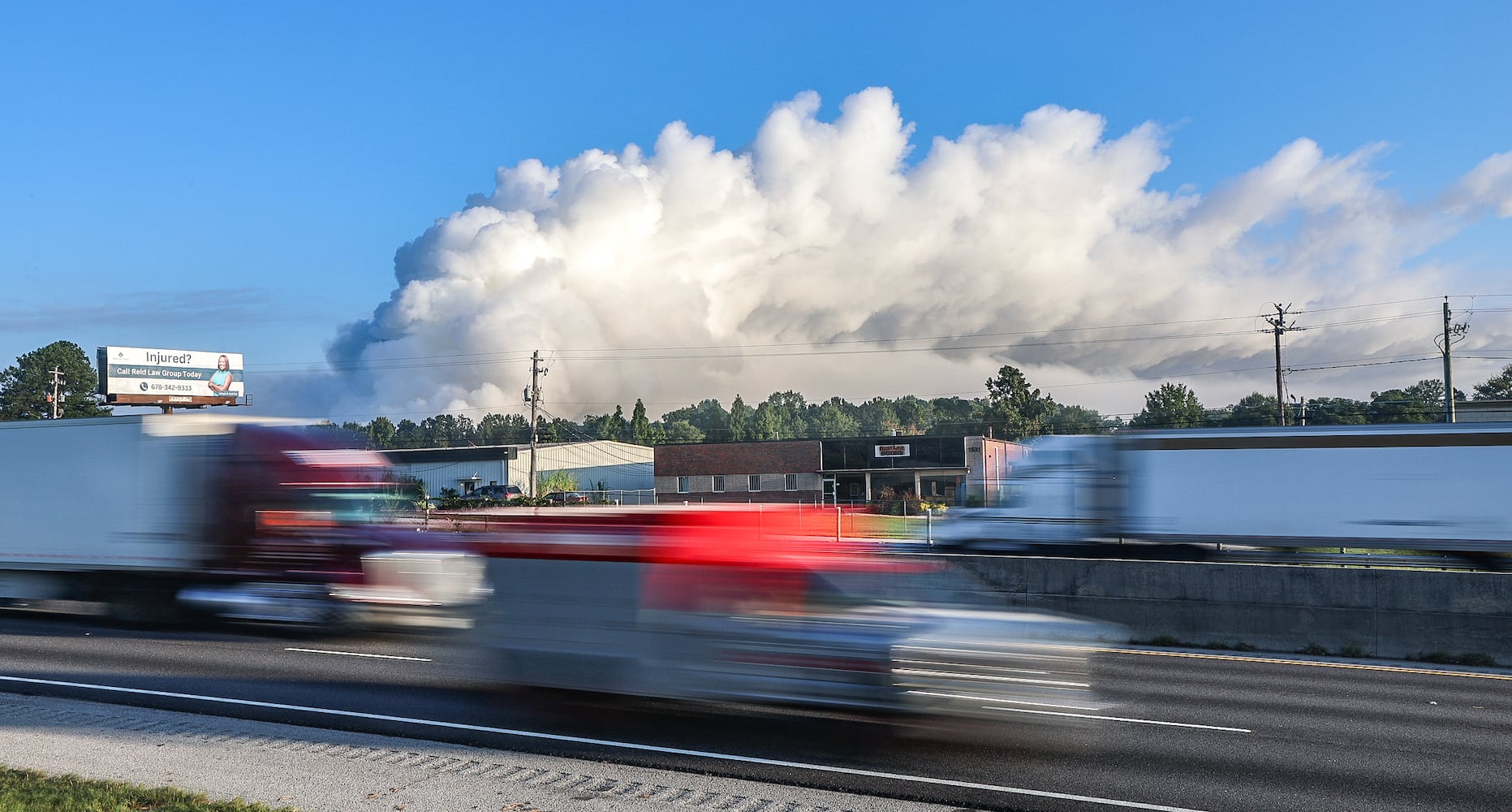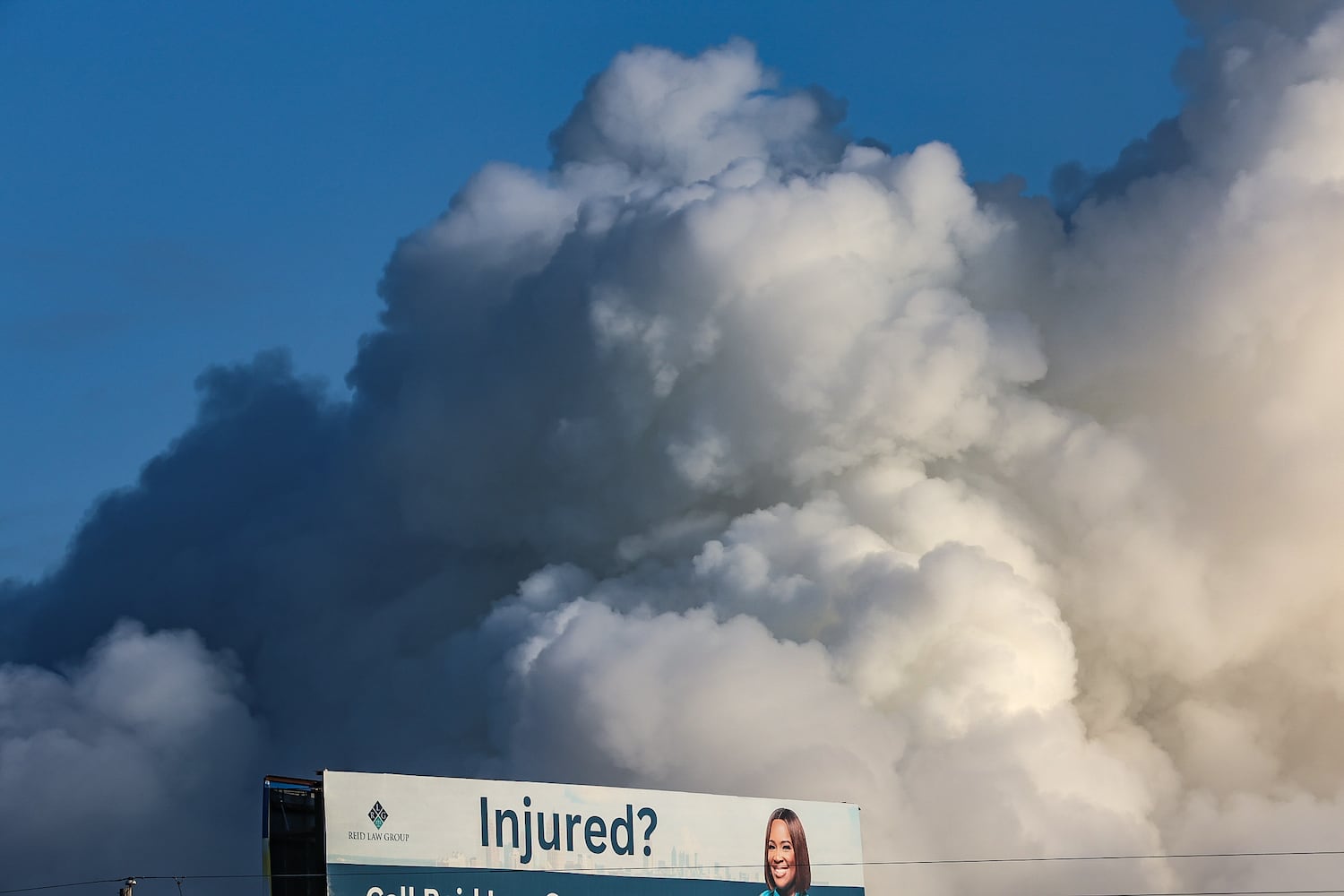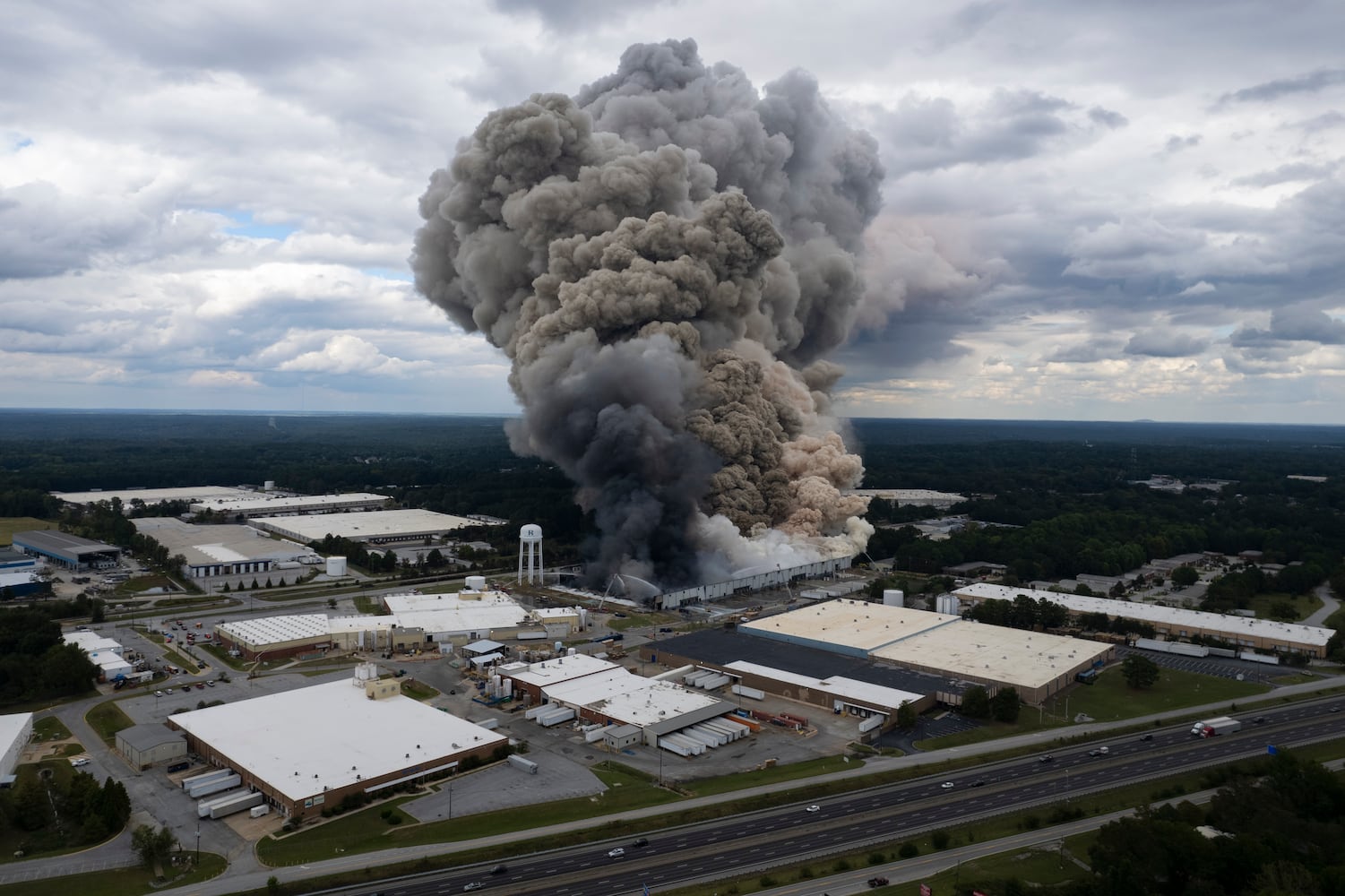Hazy skies and an odor of chlorine have persisted across parts of southeastern metro Atlanta since Sunday’s fire at the BioLab chemical plant in Rockdale County, and those conditions are expected to continue through the weekend.
The fire has been extinguished, but smoke continues to rise due to the pool chemicals produced at the plant reacting with the water that was used to contain the blaze. The fire initially sent a colossal wall of smoke into the sky.
It prompted the evacuation of about 17,000 people in Conyers and a shelter-in-place order for the entire county. Both orders have since been lifted, but officials continue recommending residents stay indoors if they experience symptoms such as eye and airway irritation, coughing, shortness of breath, difficulty breathing, chest tightness and headaches.
There is no timetable for when the cleanup will be completed.
What chemicals were released?
Chemicals released from the Conyers fire include chlorine, chloramine and chlorine compounds, according to the Georgia Emergency Management and Homeland Security Agency.
Additionally, bromine — another chemical used in spa and pool treatments as an alternative to chlorine and has a bleach-like odor — was also detected, though at lower levels.
Specifically, Georgia Tech professor Sally Ng said a system known as the Atmospheric Science and Chemistry Measurement Network detected a 1,400-times increase in the amount of chlorine-containing particles in the air, and a 170-times increase in the amount of bromine-containing particles in the air over Decatur on Monday morning. Typically, there is little of either element in the air, Ng said.
Bromine exposure also can be toxic, the symptoms of which are similar to chlorine exposure.
How does this affect you?
While the shelter-in-place order in Rockdale County has been lifted, officials recommended that residents shelter in place from 7 p.m. to 7 a.m. until Friday.
The Georgia Emergency Management Agency has advised anyone who notices a chlorine odor in the air to limit their time outdoors. Chlorine, however, has a low odor threshold, meaning people can smell it even at very low concentrations that do not cause harm, according to the U.S. Environmental Protection Agency.
“For everyone sheltering in place, the best practice is to turn the air conditioning off and keep windows and doors shut,” officials instructed.
GEMA issued a public safety alert Monday afternoon that went out statewide but only affects people within a 50-mile radius of Rockdale County. The alert was issued on behalf of the state’s Environmental Protection Division and stated that “chemical levels are unlikely to cause harm to most people.”
Who are “most people?”
Those with underlying health conditions, such as asthma and chronic obstructive pulmonary disease, should be especially careful to avoid exposure and pay attention to symptoms, according to Jeremy Sarnat, an associate professor at Emory University’s Rollins School of Public Health and member of a scientific committee that advises the EPA.
Additionally, those who are pregnant, children and the elderly, should limit their time outdoors.
So far, air quality testing has not detected concentrations that would pose safety concerns to the general public. The health effects from an exposure to the chemicals will be strongly influenced by the amount of the chemicals a person inhales and their individual health status, Sarnat said.
Is this toxic?
The Centers for Disease Control and Prevention didn’t answer questions about the possible health impacts from the chemical release; instead, a spokesperson said it would refer questions to GEMA, which is leading the emergency response.
However, on its informational webpage, the CDC notes that exposure to chlorine can cause burning of the eyes, nose and throat. It also can lead to headaches, nausea and choking.
At low concentrations, though, only a small amount may reach your lungs, the CDC says. More severe injury takes place if people are exposed at highly concentrated levels because, when chlorine gas touches moist tissues (such as eyes, throat and lungs), it creates an acid that can harm these tissues.
For example, a short exposure to chlorine in the air at one to three parts per million could lead to mild nose irritation. At five to 15 parts per million, throat irritation could arise. An exposure of 40 to 60 parts per million could result in lung injury.
Most people’s exposure from this incident would likely be low and under five parts per million, unless a person was in the direct plume release, Sarnat said.
Symptoms of exposure and next steps
If high amounts of chlorine are inhaled, breathing problems can show up right away. But if low amounts are inhaled, symptoms might show up later, according to the CDC.
Here are some symptoms to look out for:
- Blurred vision or eyes tearing up.
- Burning feeling in the nose, throat, lungs and eyes.
- Coughing and/or coughing up white- to pink-colored fluid.
- Chest tightness.
- Breathing problems, shortness of breath, or rapid and shallow breathing.
- Nausea and/or vomiting.
People with nonurgent symptoms can call the Georgia Poison Center to discuss what they should do, and whether they need to seek medical care, at a special number established for this purpose: 404-856-6252.
Those with chest or asthma symptoms should contact their allergist, as such complications can linger for several days after the initial trigger, Dr. Lily Hwang of Atlanta Allergy and Asthma clinics said.
How should you protect yourself?
Sarnat, the Emory professor, said there’s little protection to be had from wearing a mask like those worn to prevent the spread of coronavirus. The gas molecules and particles that may form from reactions with other gases are smaller than virus particles and would easily penetrate those masks, he said.
There are heavy duty respirators that would work, but they are cumbersome and typically used in occupational exposure settings, not by the general public.
What caused the fire?
It is unclear what sparked the fire, which started on the facility’s roof Sunday morning. It was initially extinguished but reignited that afternoon, triggering the building’s sprinkler system, which then caused water to mix with a water-reactive chemical.
Workers had already been trying to move the chemical away from the water source but had not done so by the time the fire reignited.
The flames were brought under control by 4 p.m. Sunday, and the plant’s roof and walls collapsed. No injuries were reported, though some employees were inside the plant at the time.
Has this happened before?
In September 2020, I-20 was closed for more than six hours as a chlorine vapor cloud rose from the facility due to a chemical reaction, which had also been caused by a water exposure inside the plant, a company spokesperson said at the time. Nearby businesses were evacuated, and residents were encouraged to shelter in place.
In 2016, the Rockdale County fire department responded to an incident involving trichlorisocyanuric acid, another swimming pool chemical, that had been left in BioLab’s waste storage site within two 3.5-gallon buckets. The chemical had started smoking as it started to breakdown, according to a Georgia Environmental Protection Division complaint report.
In 2004, a fire broke out at the BioLab warehouse in Conyers that contained about 12.5 million pounds of pool chemicals and oxidizers, prompting thousands of residents to evacuate.
To fight the fire, excavators were used to knocked down one of the walls of the warehouse to flood the area with water. EPD went on to investigate problems with water runoff, which caused a “sizable fish kill” in nearby VFW Lake two days after the fire.
In that case, “the effect of the plume was felt more than 50 miles away,” the EPA said on its website.
The EPA said its responses to the 2004 and 2020 fires were “very similar to current response actions.”
A BioLab facility in Westlake, Louisiana, has also had numerous problems.
After Hurricane Laura hit the area in August 2020, a major fire at BioLab’s Louisiana facility caused a release of chlorine gas that caused significant damage to the facility.
In March 2023, a chlorine leak at the same Louisiana facility caused a cloud over the city of Westlake for hours, according to reports.
And in July 2024, a fire at the same facility caused the closure of a portion of I-10 and a shelter-in-place order, according to news reports.
About the Author
Keep Reading
The Latest
Featured
